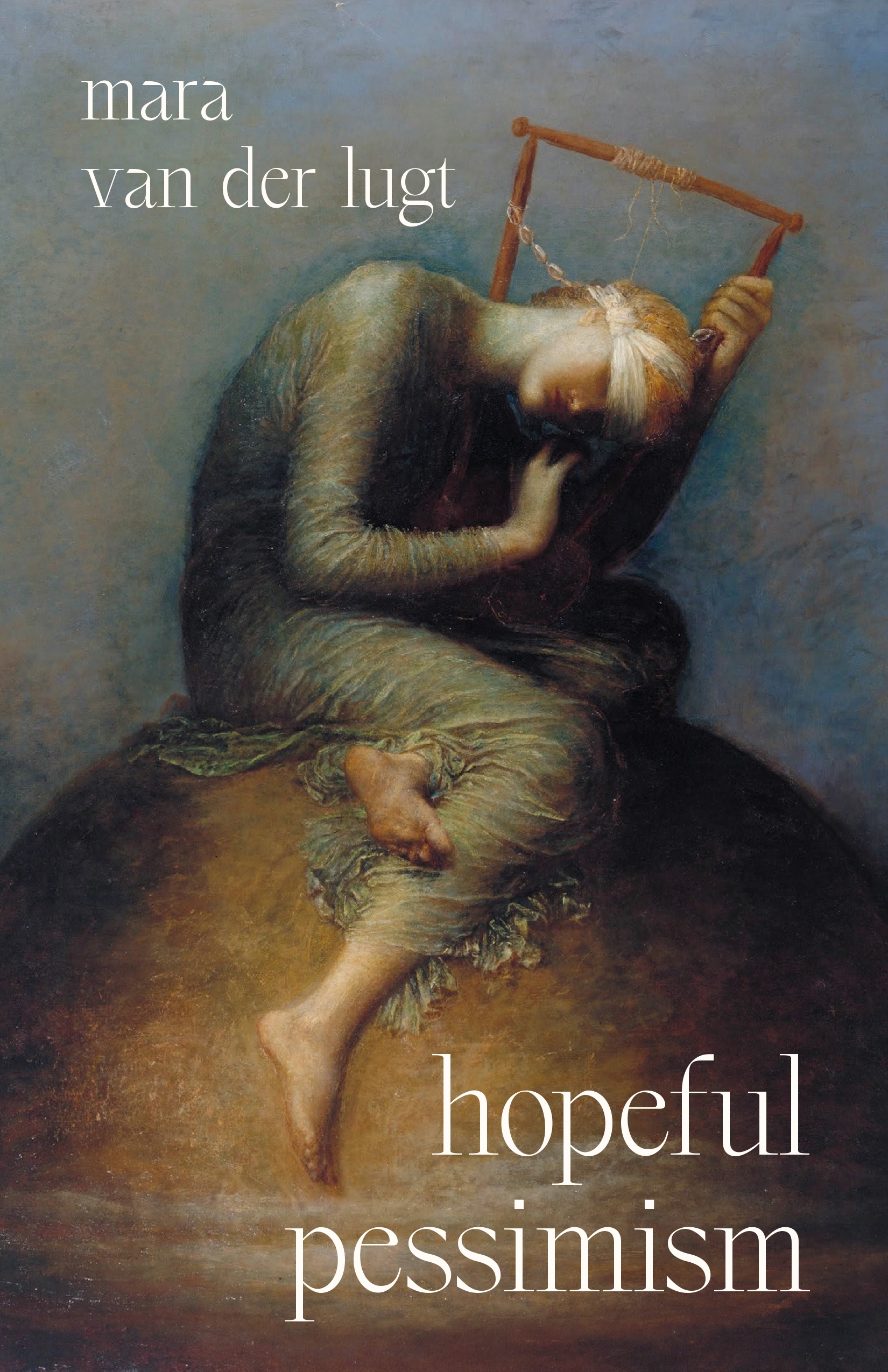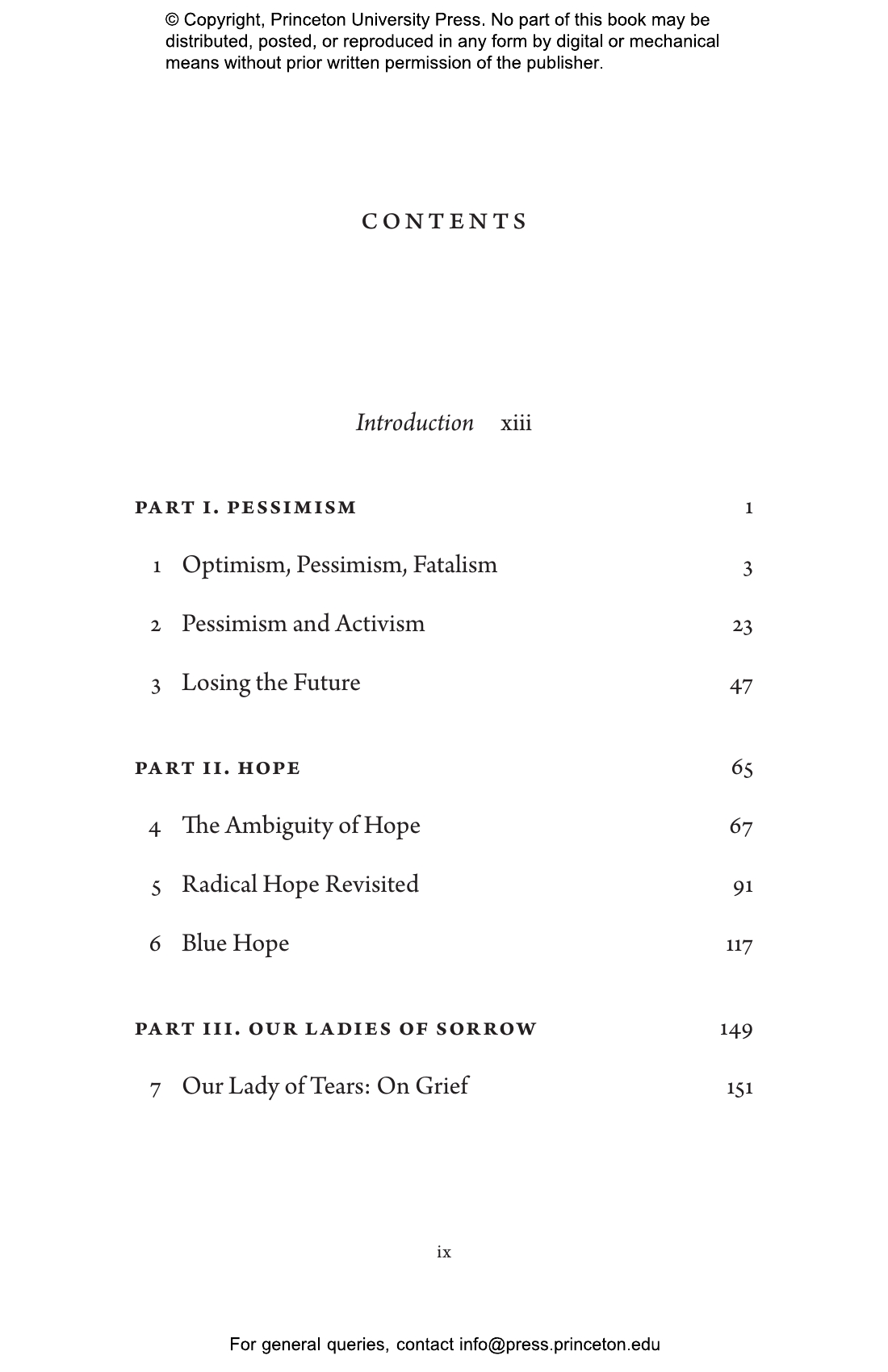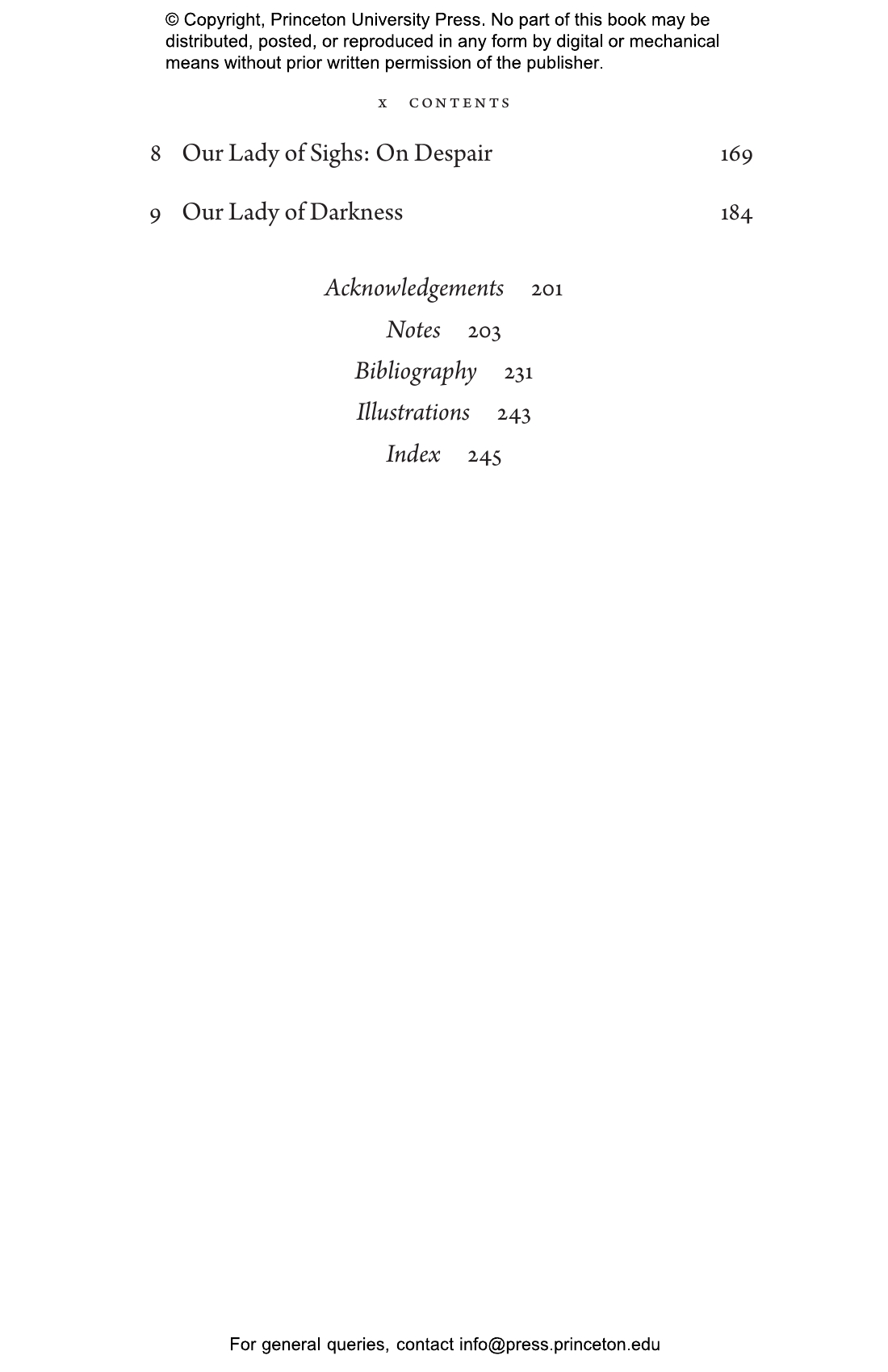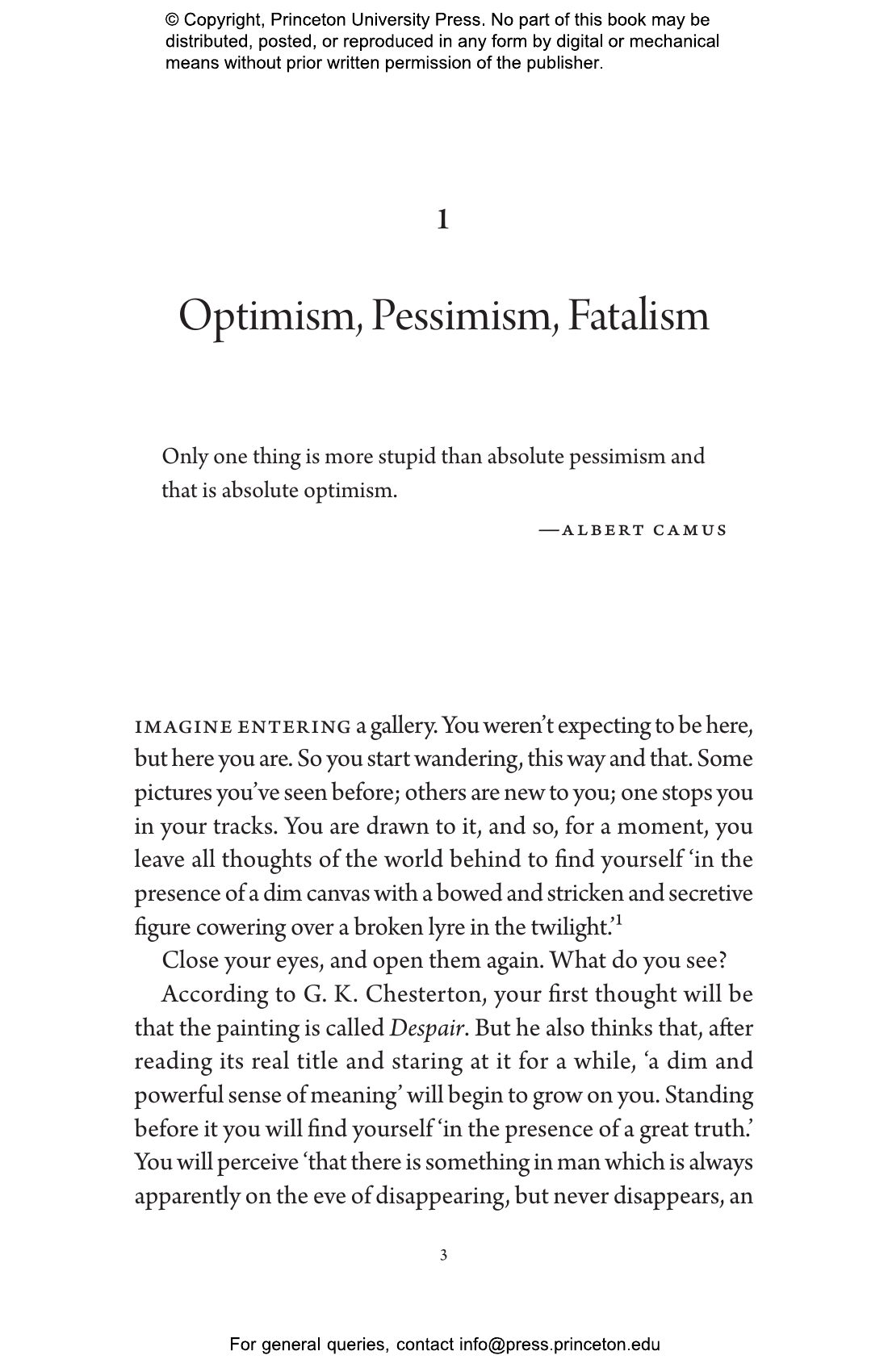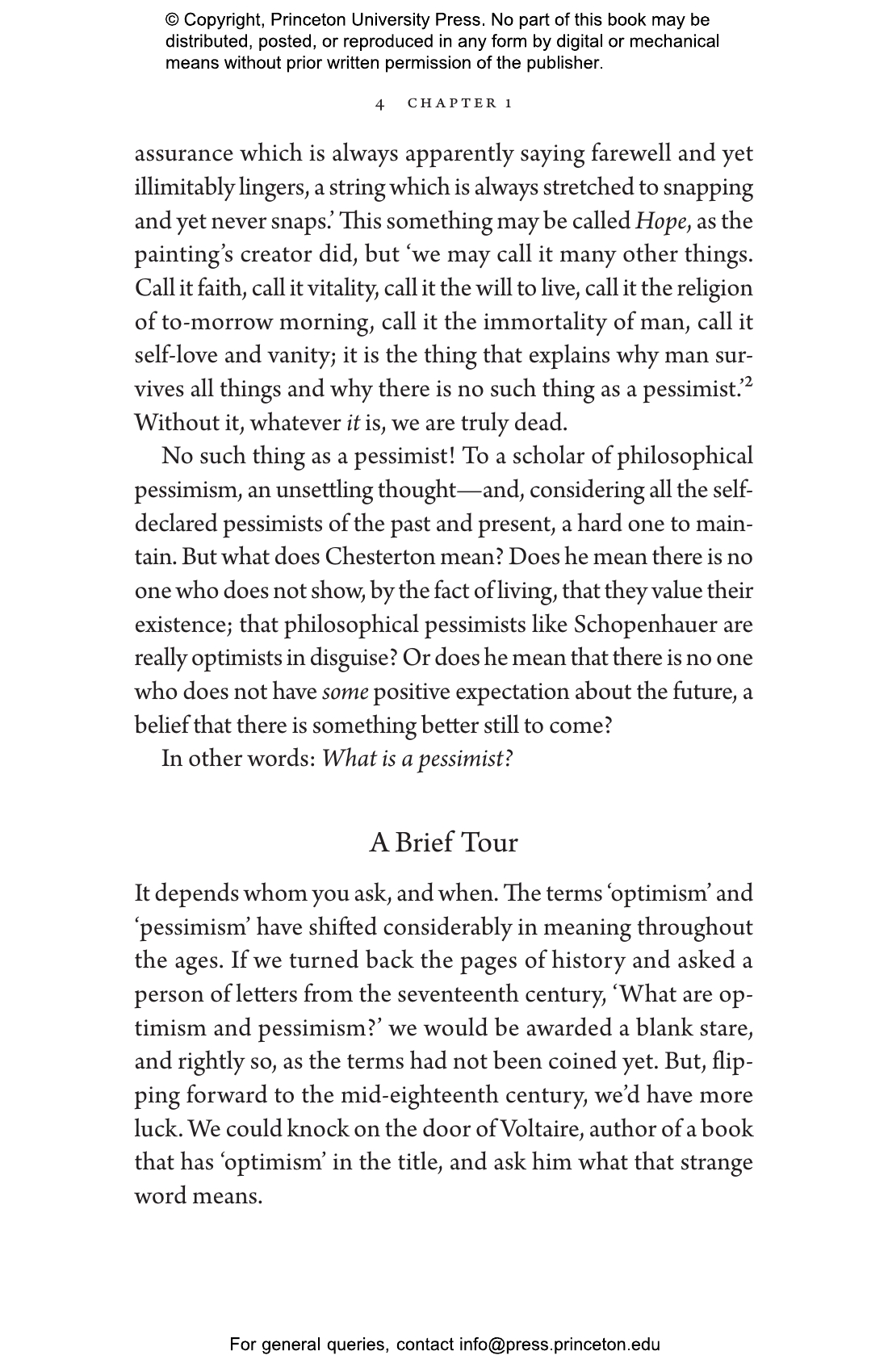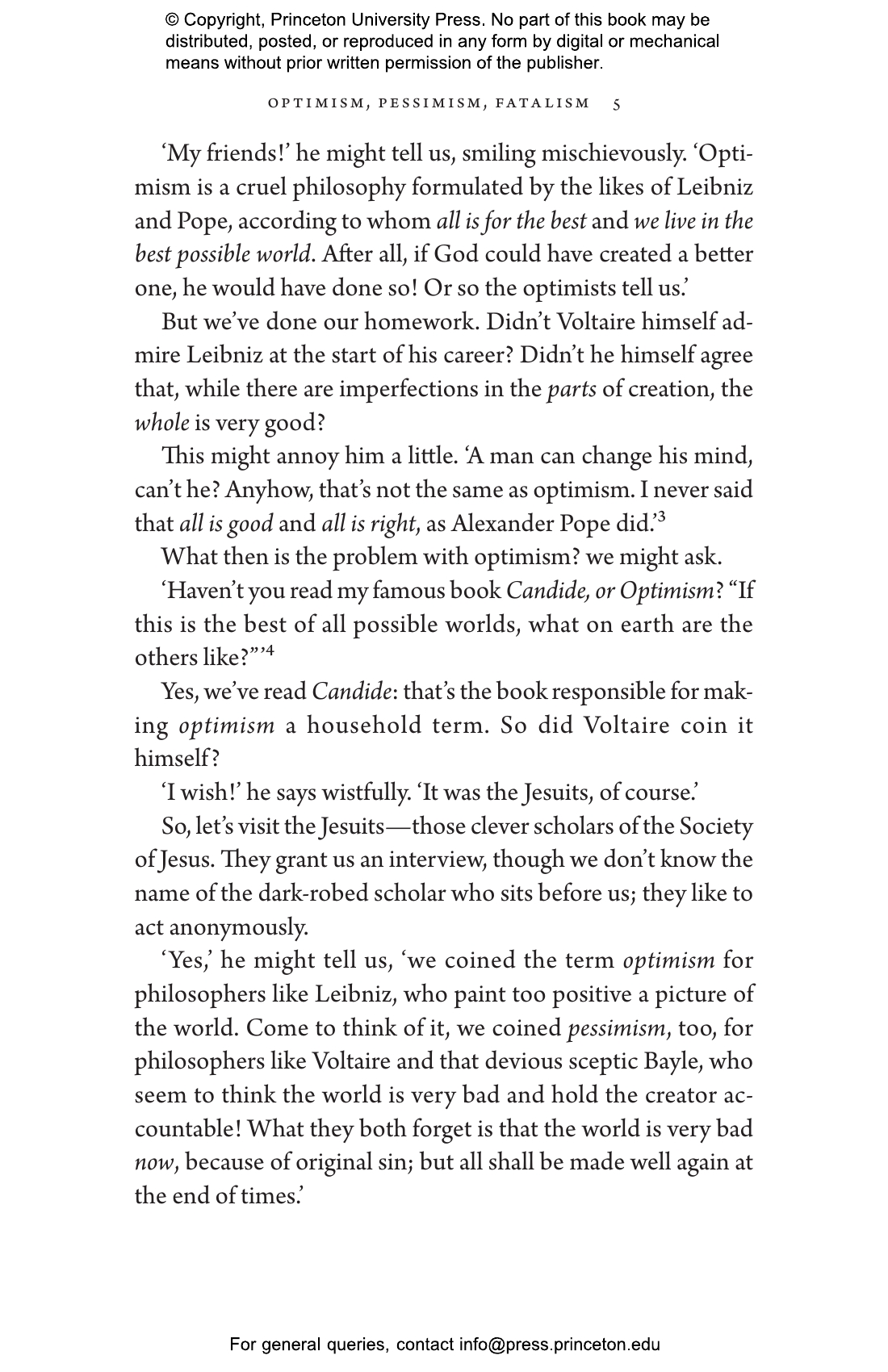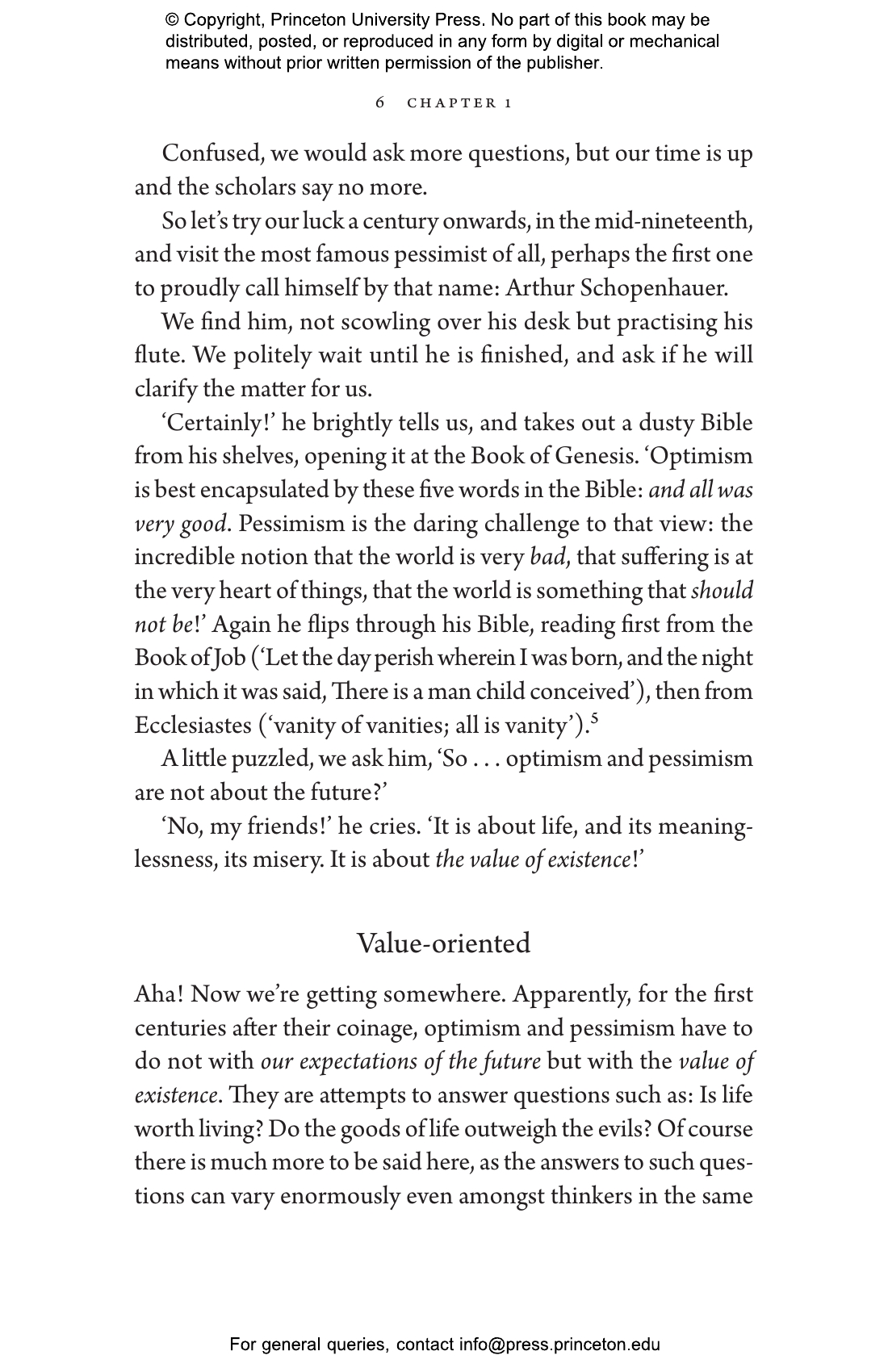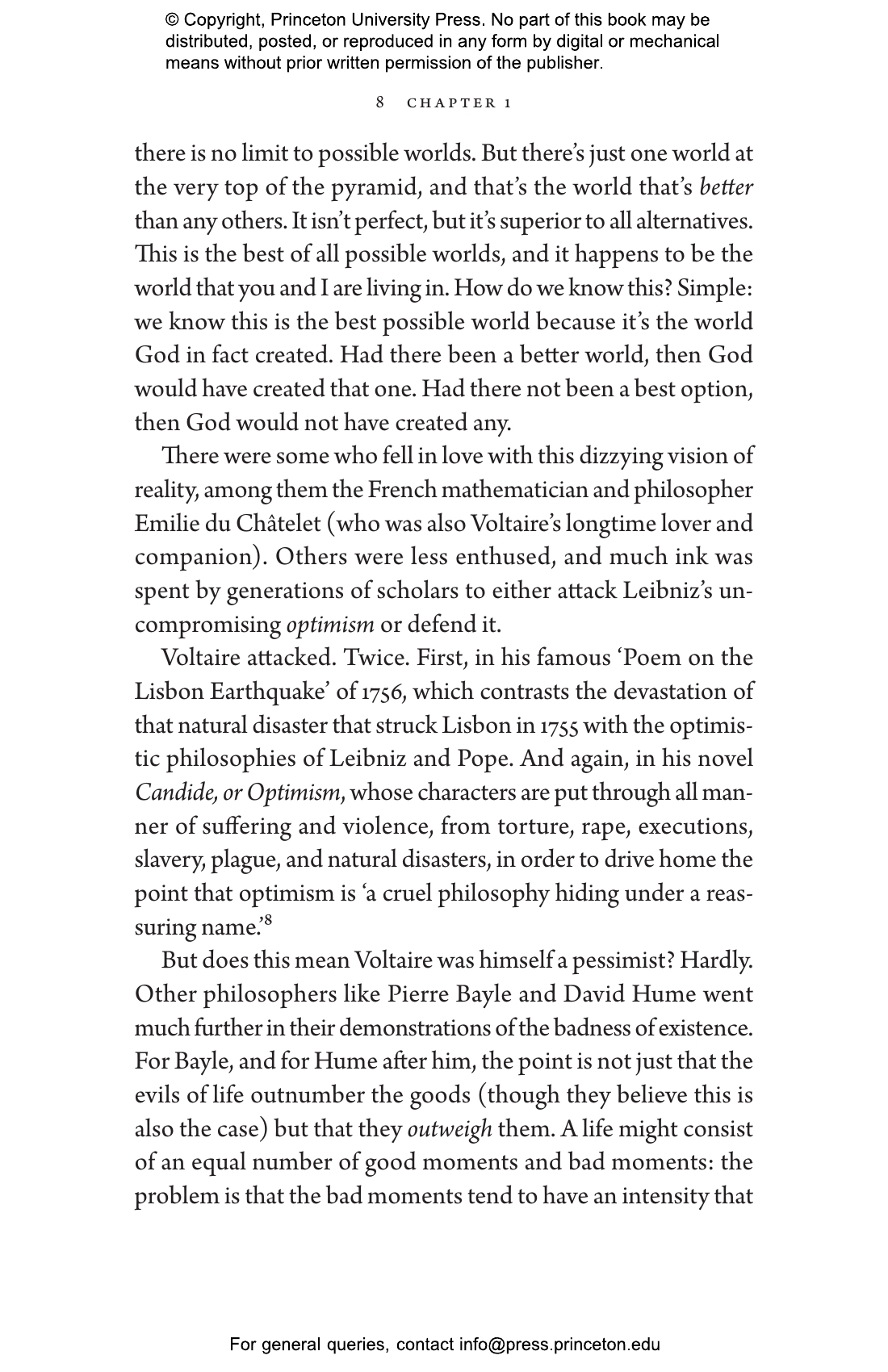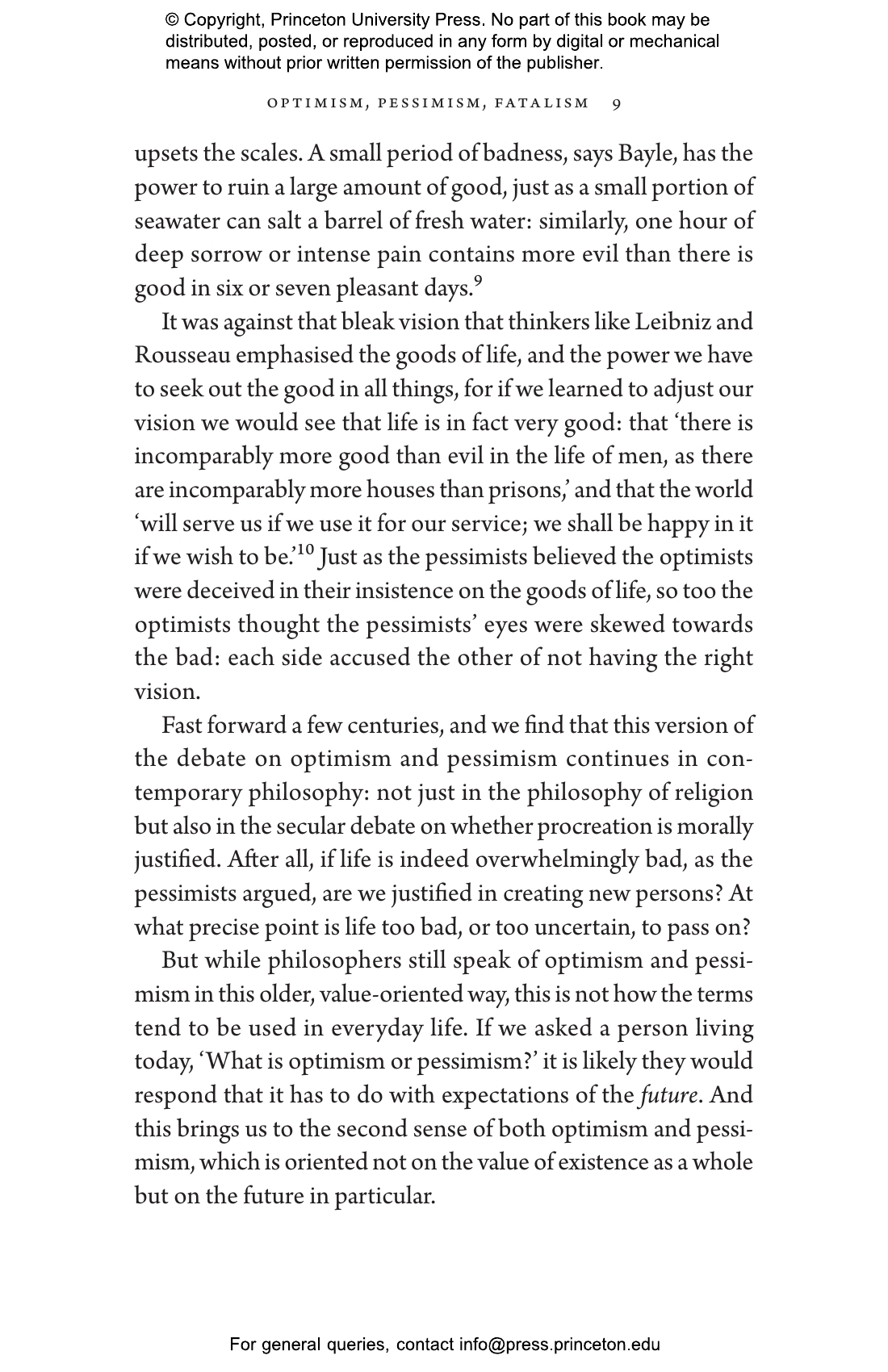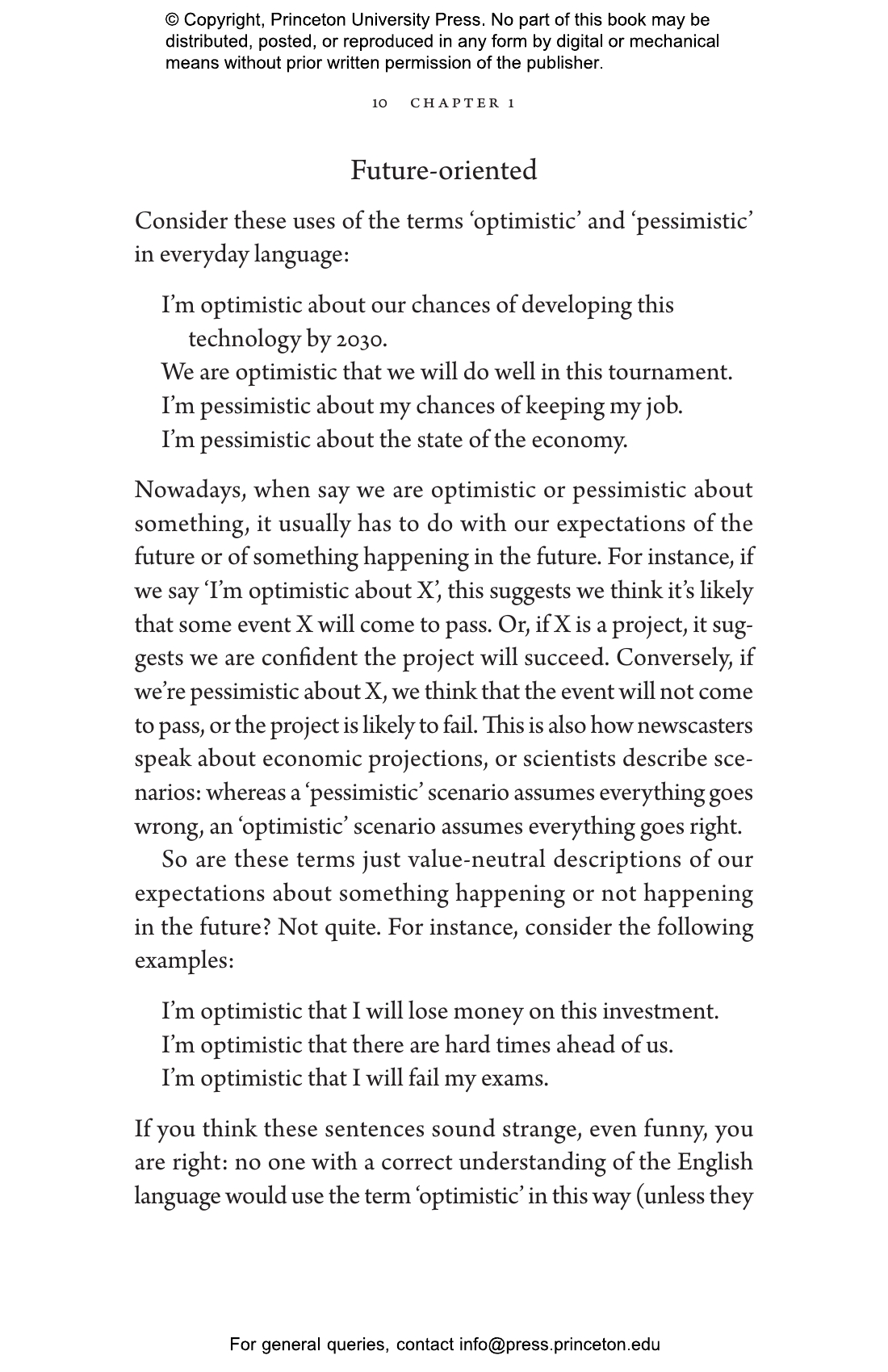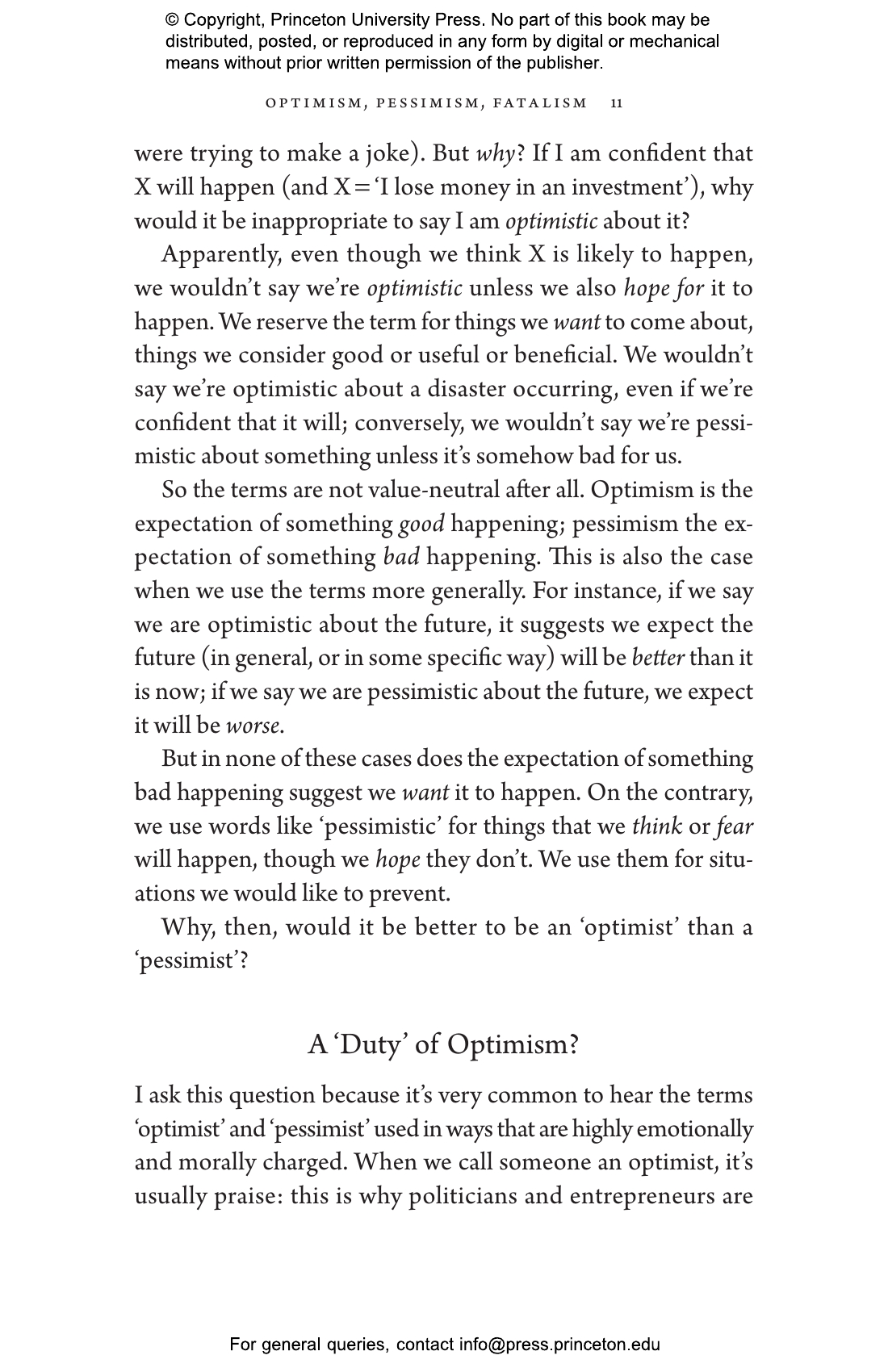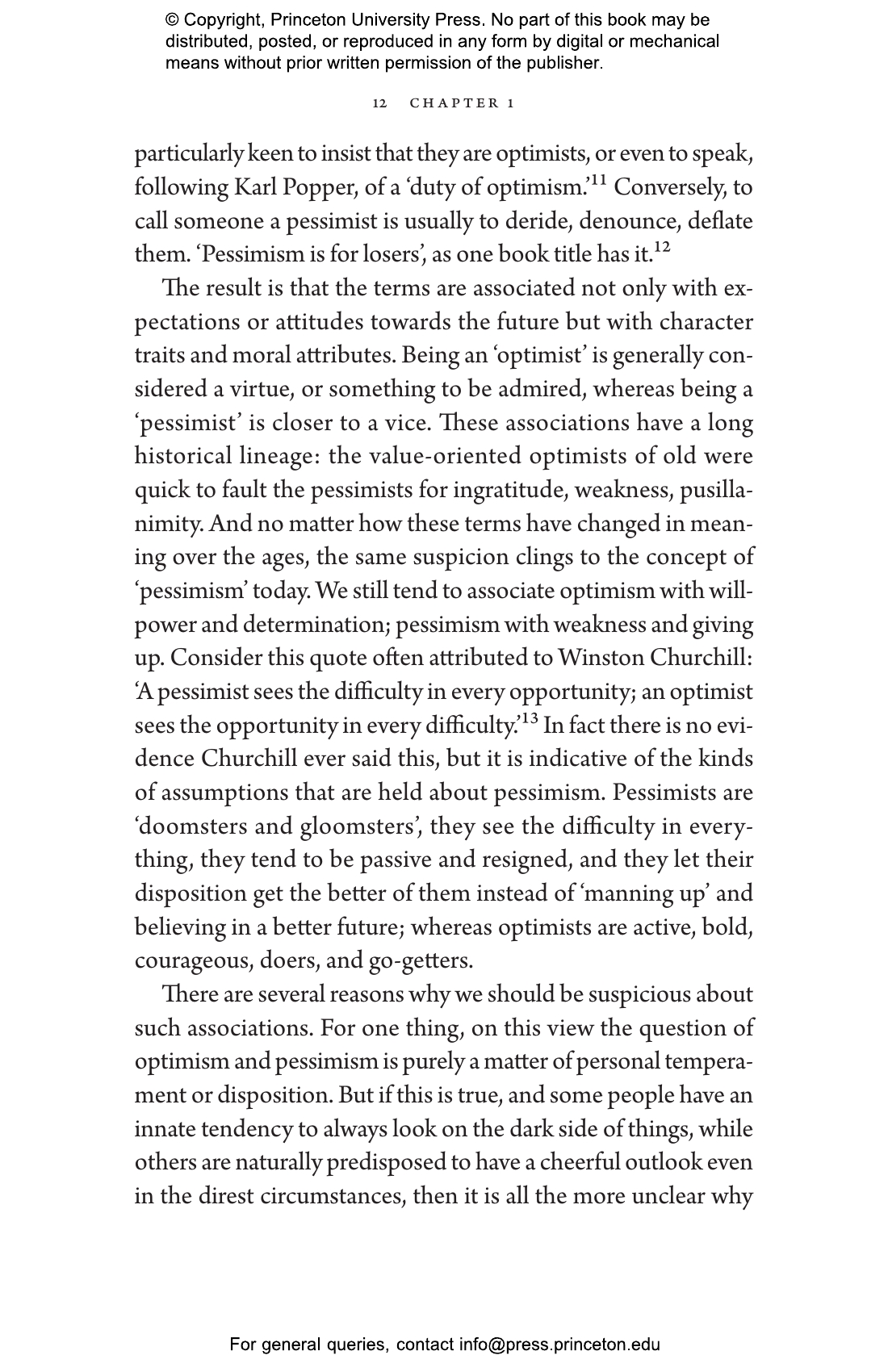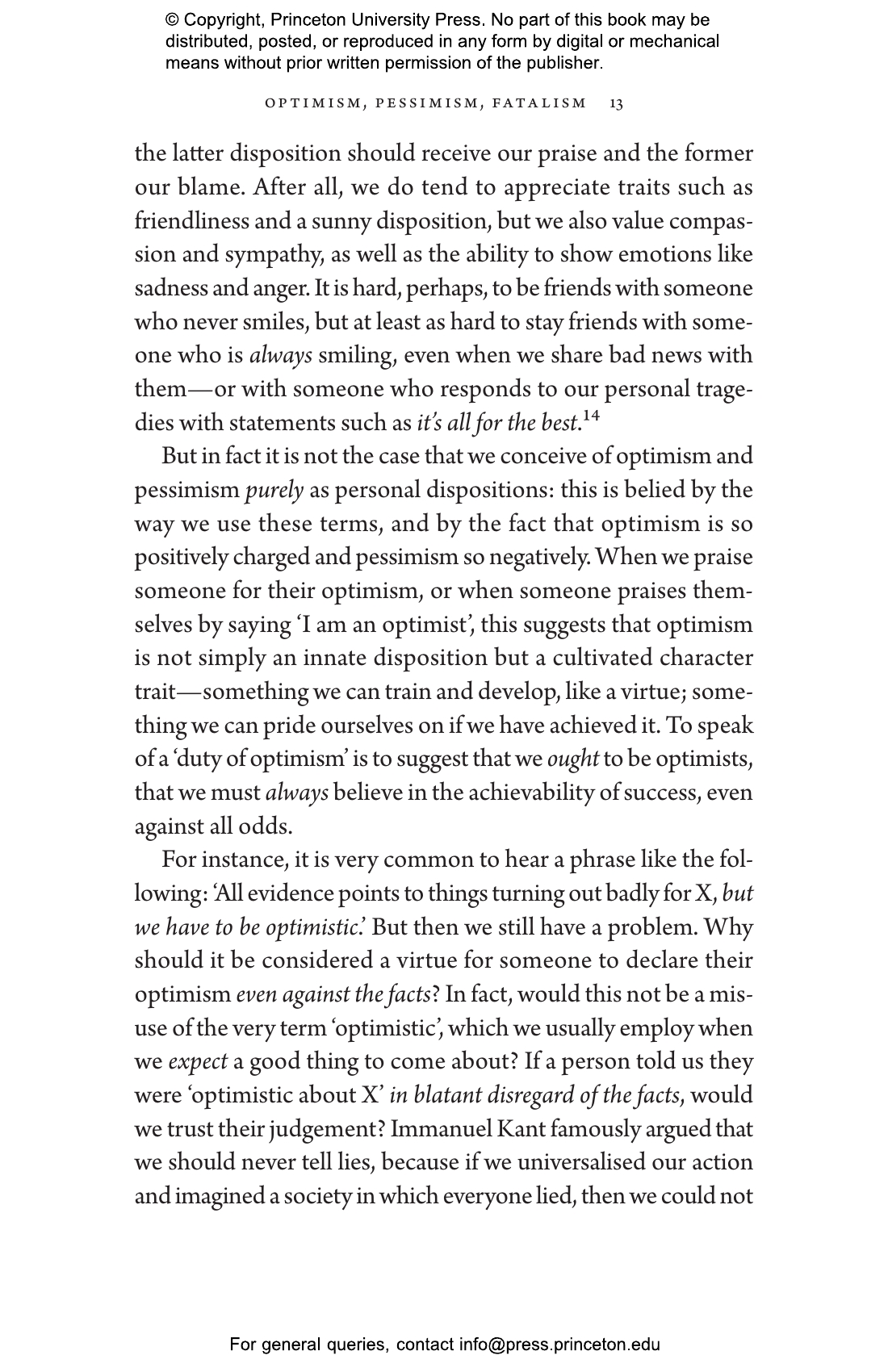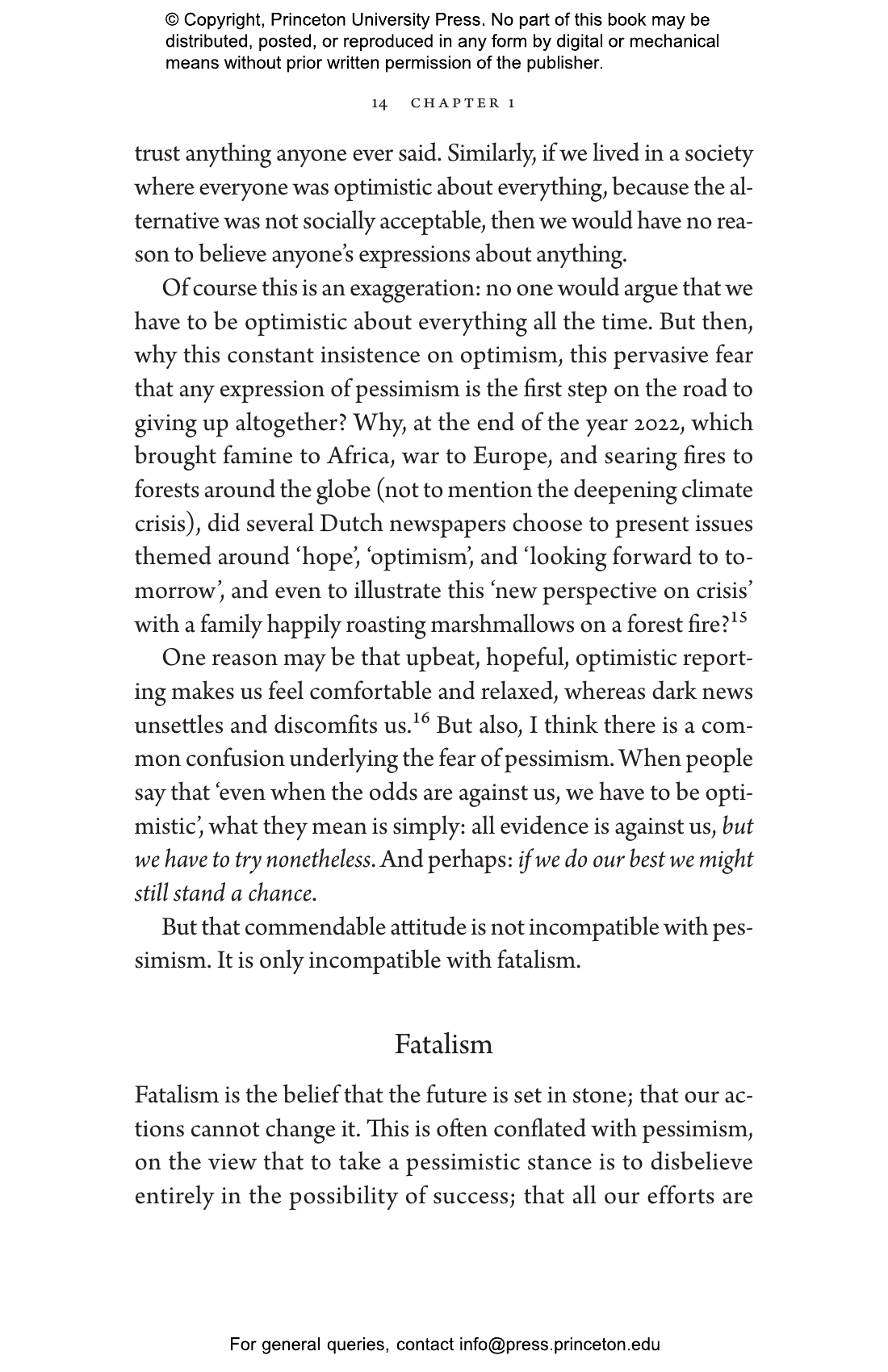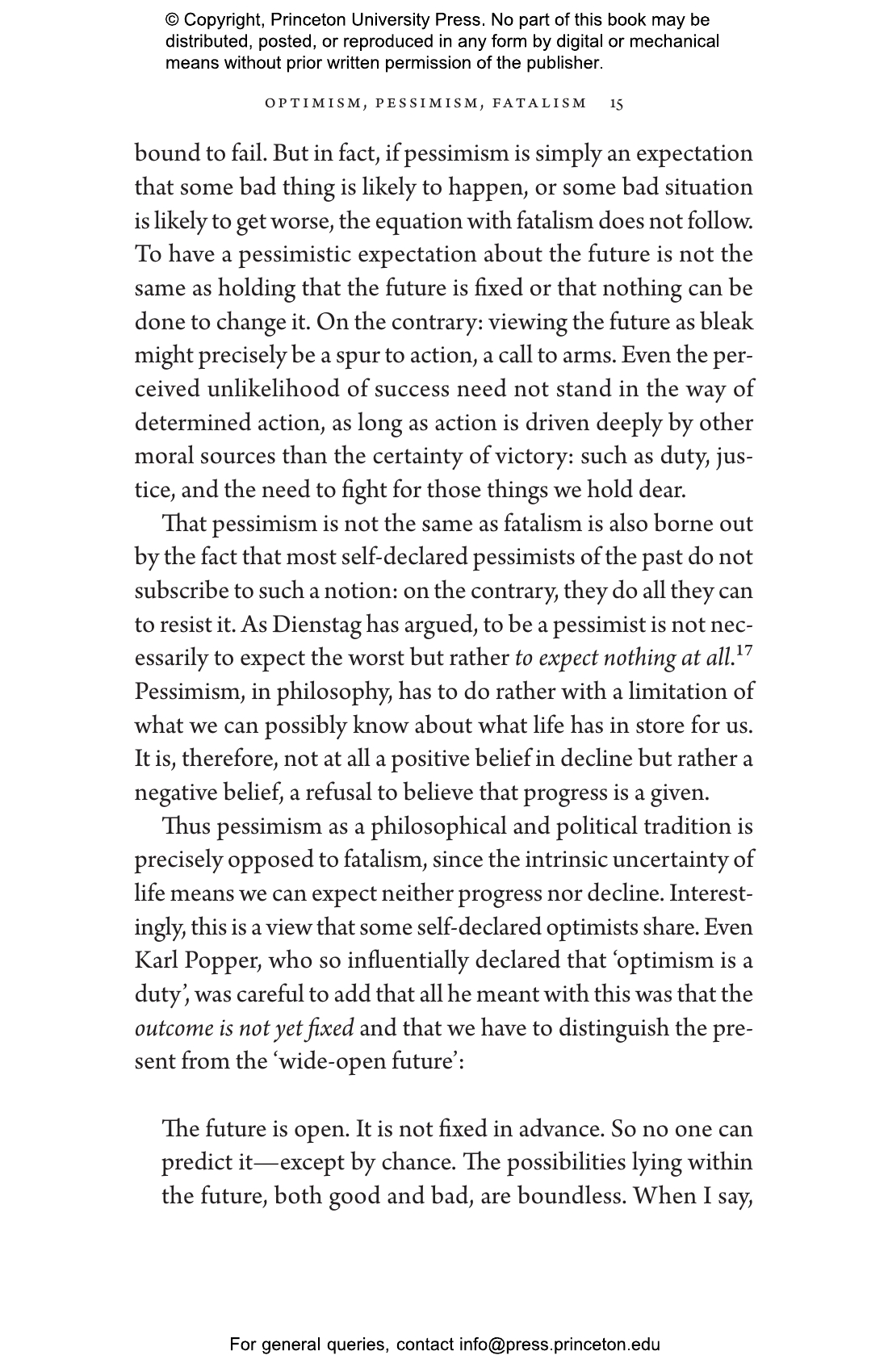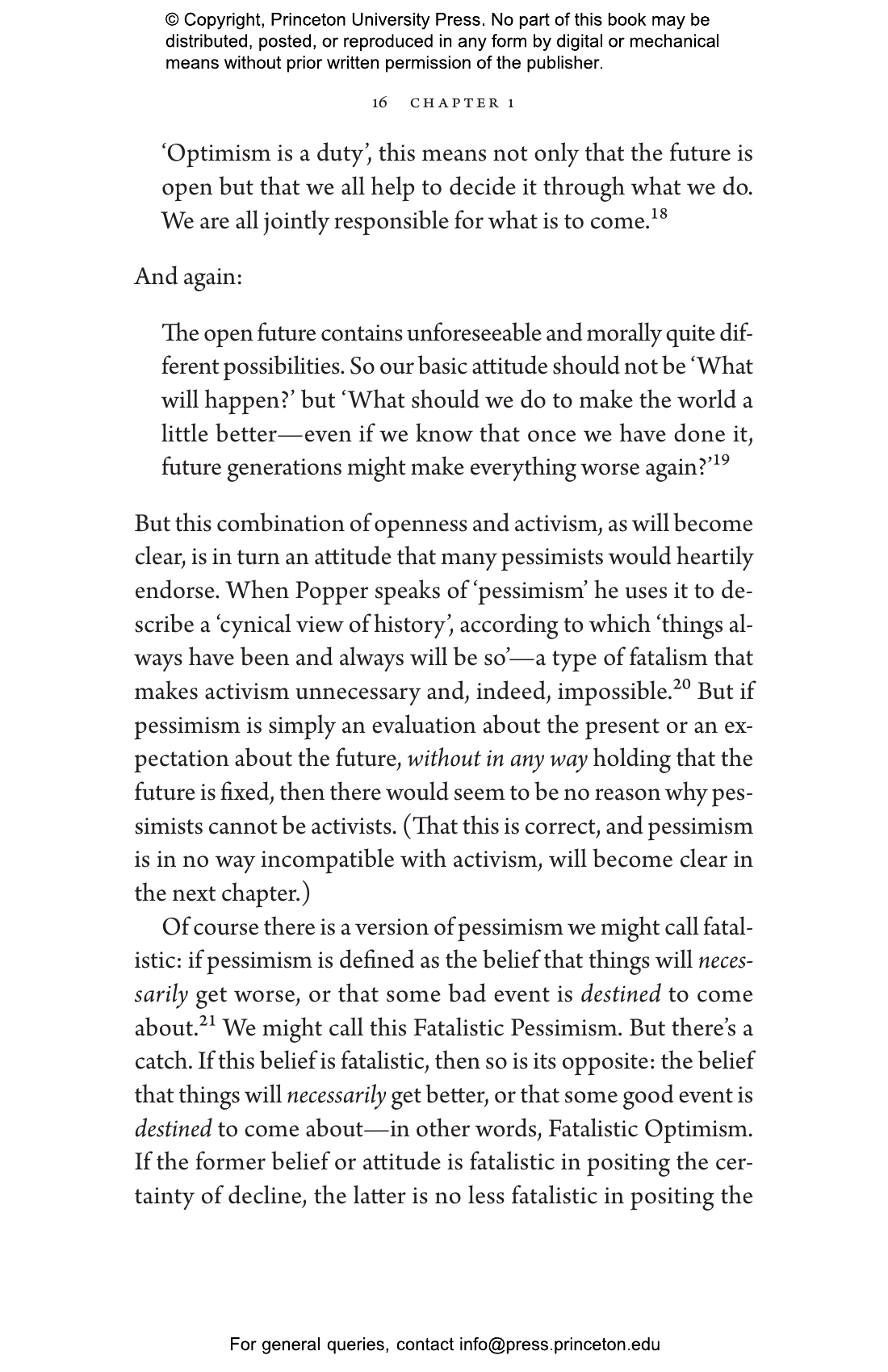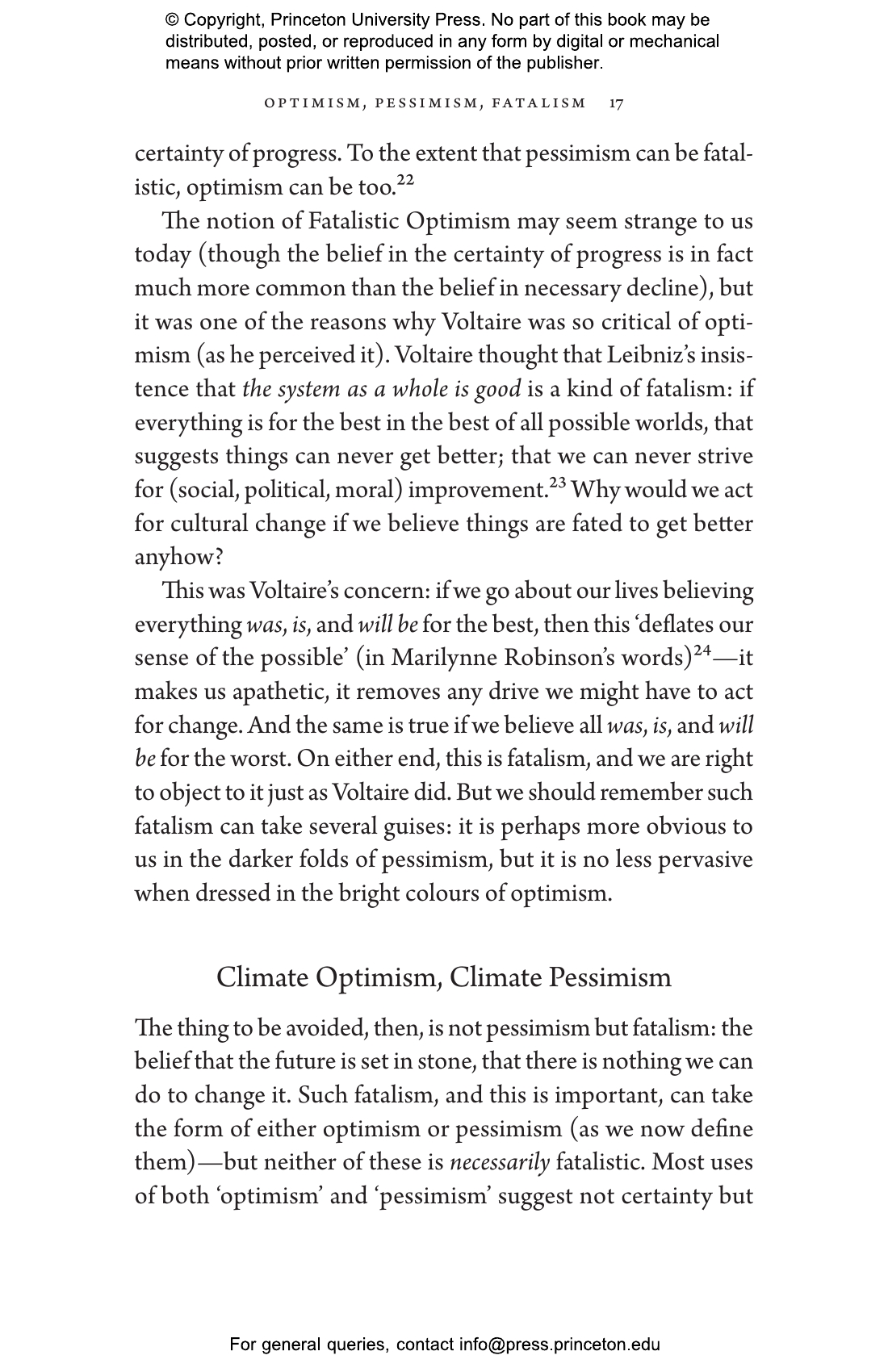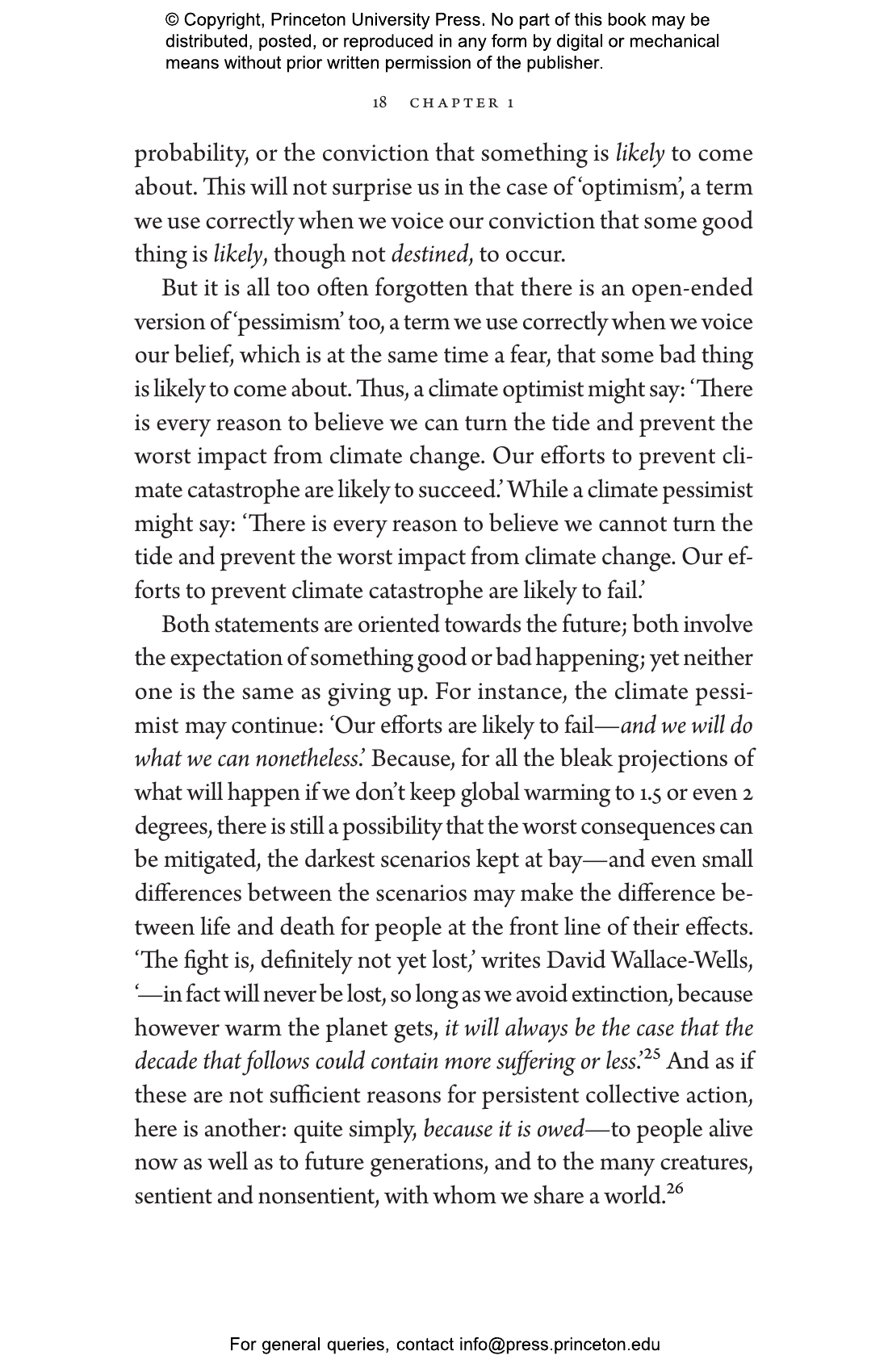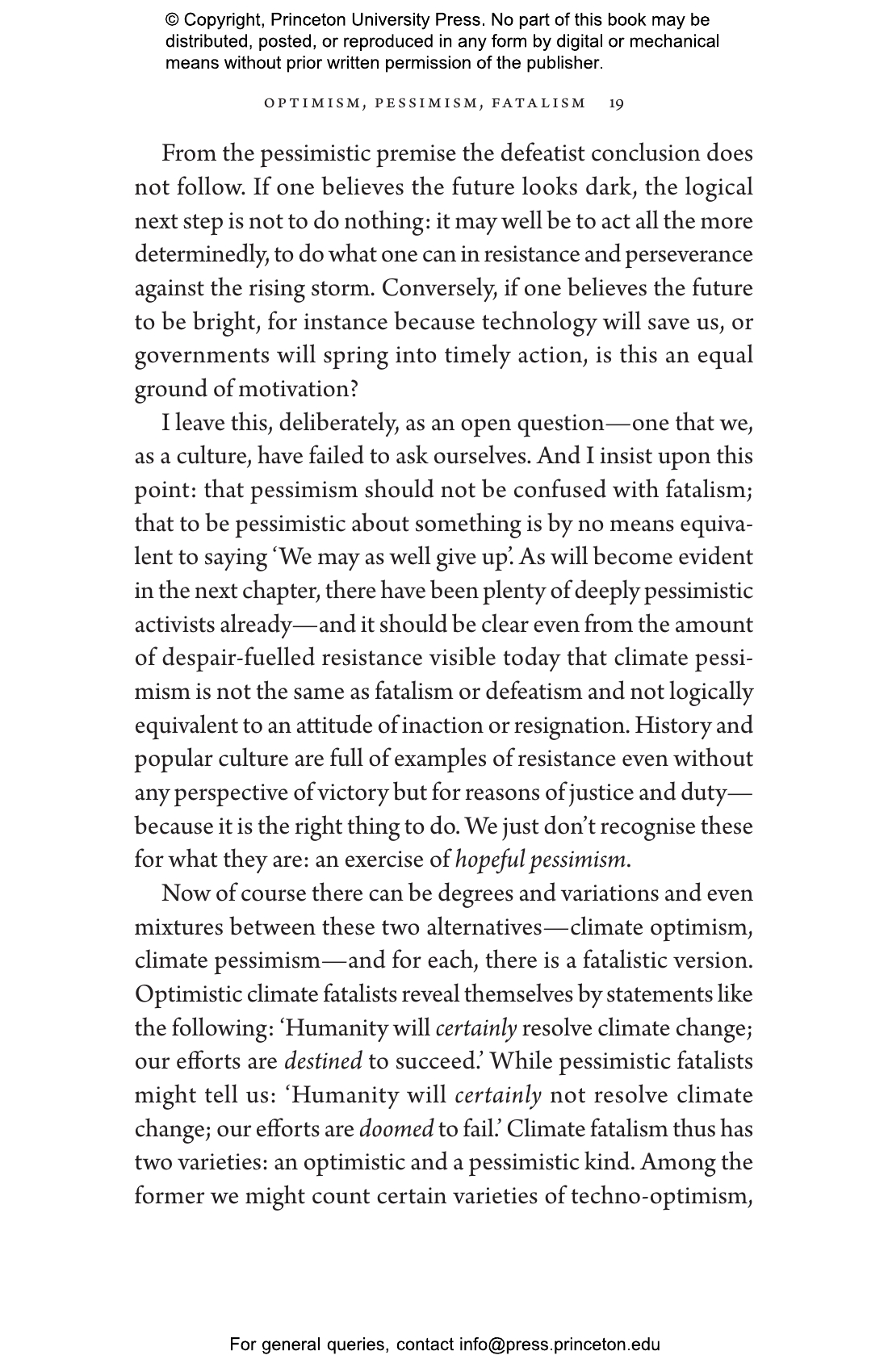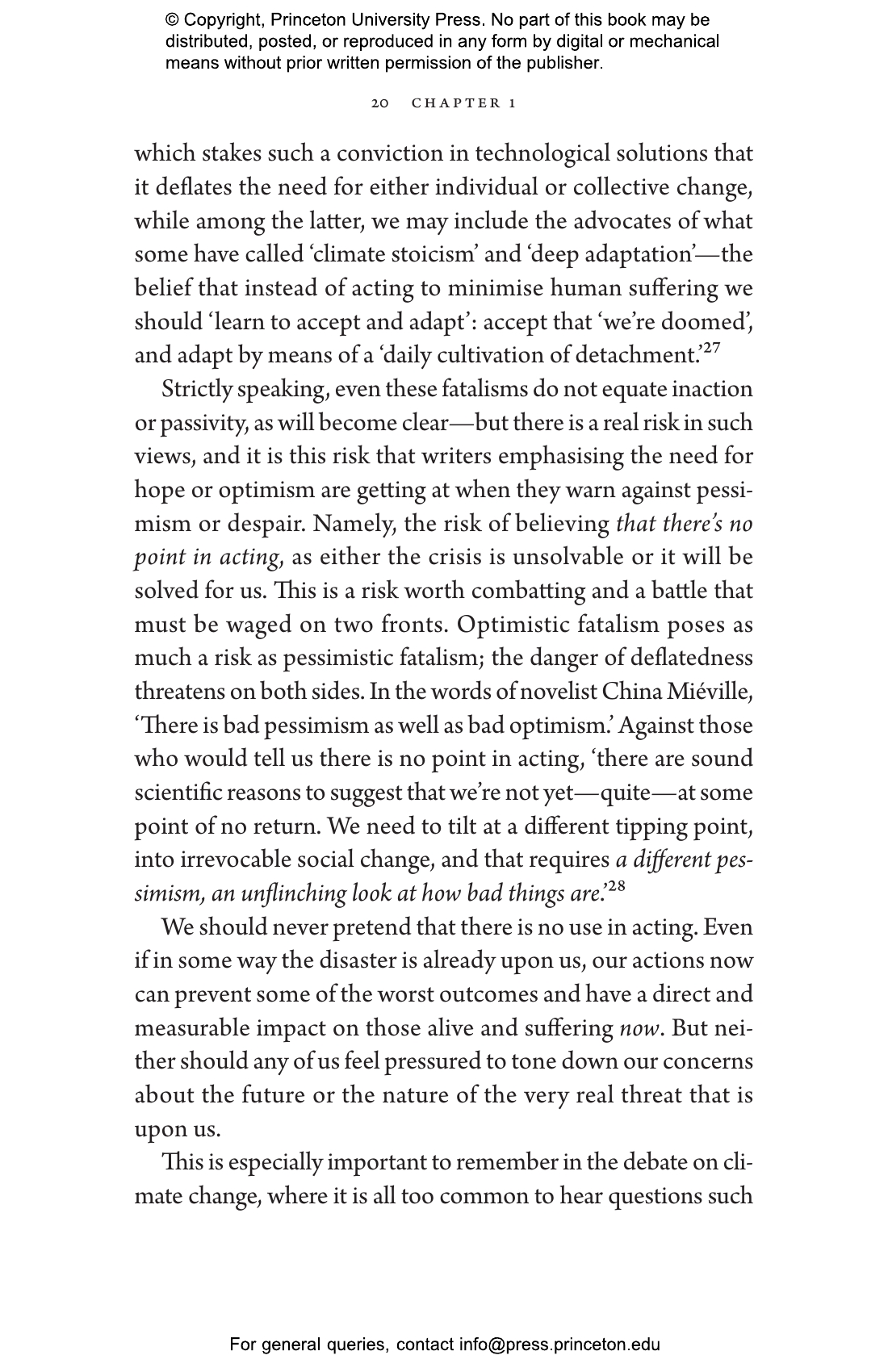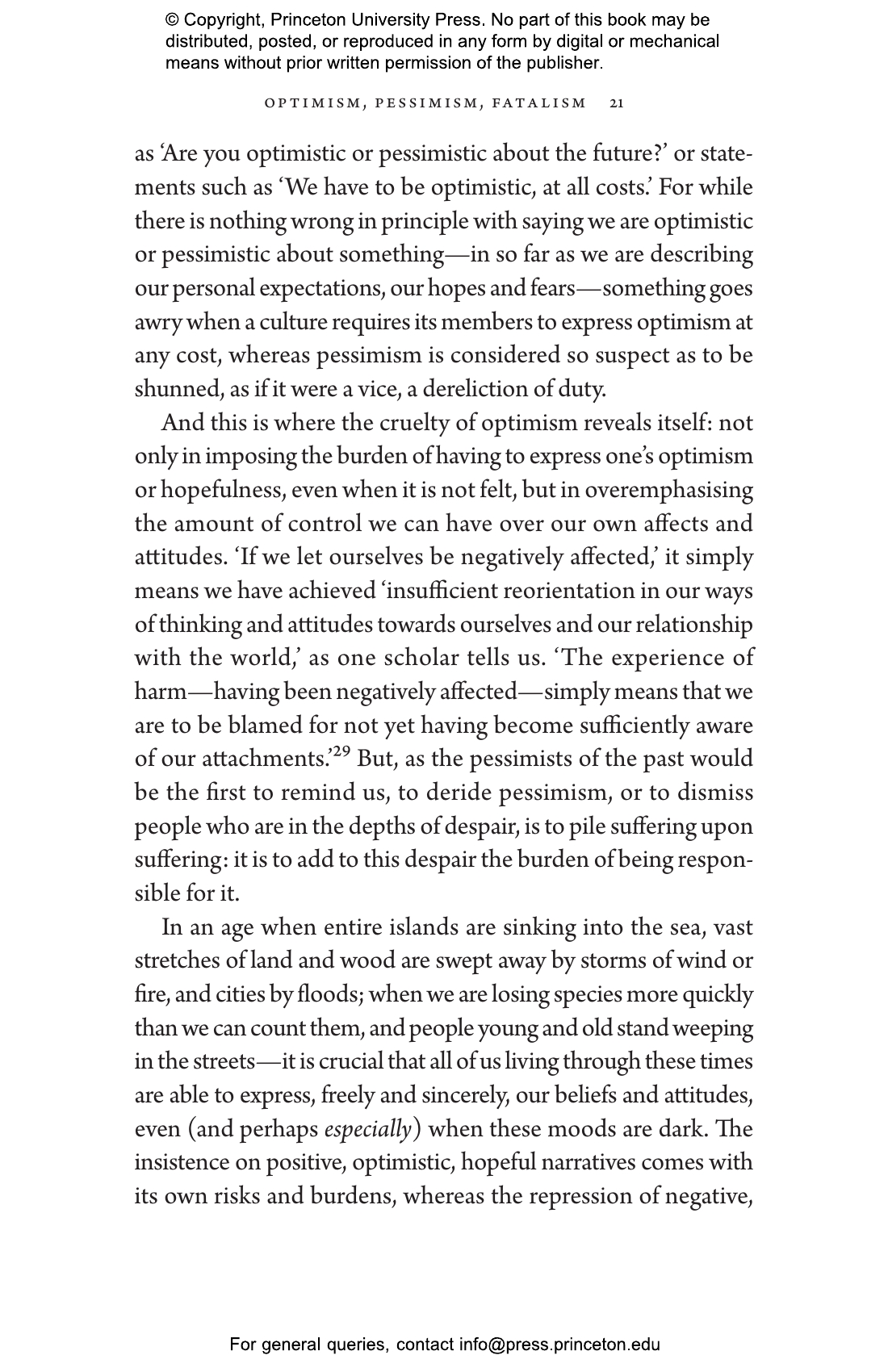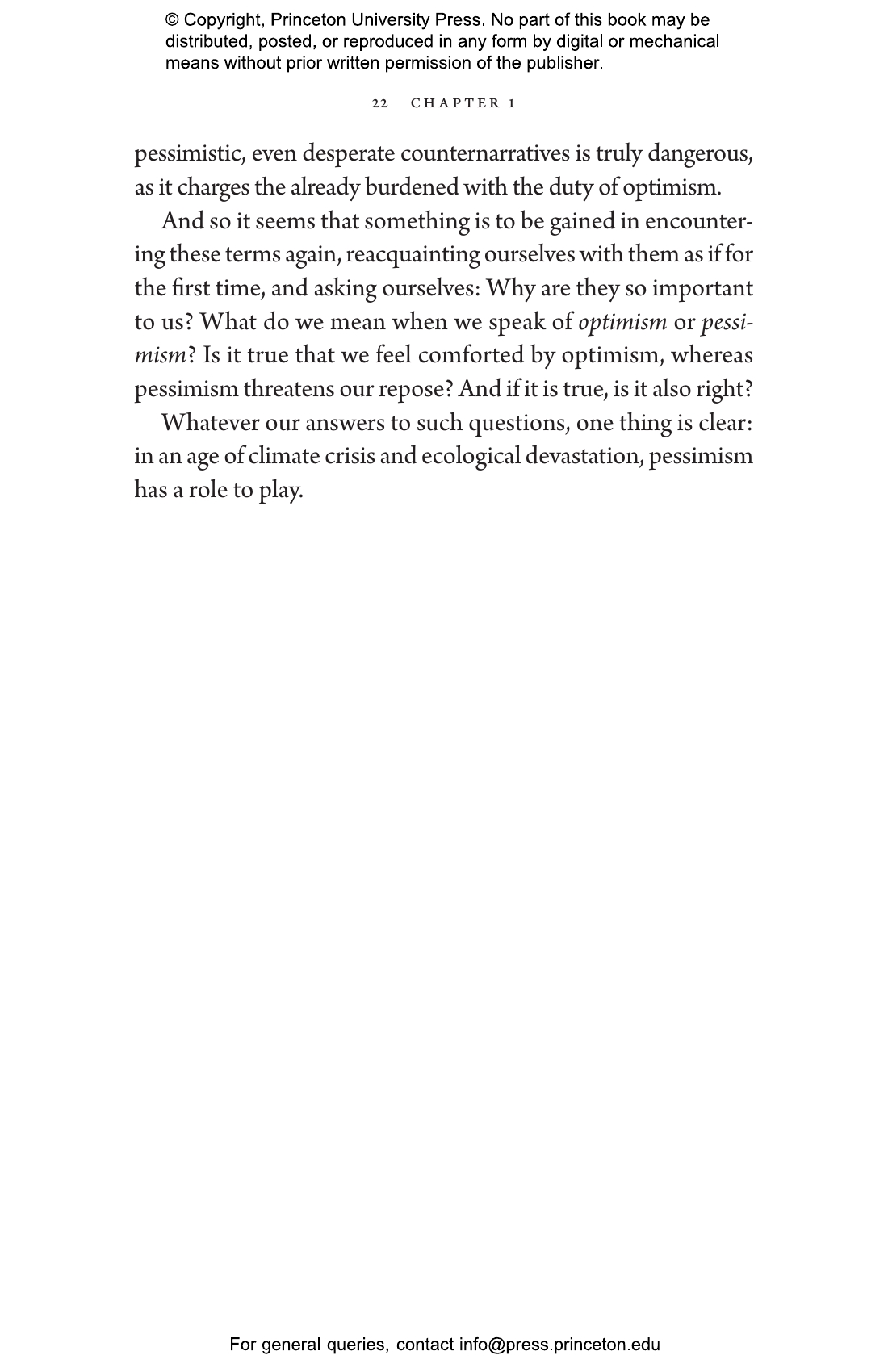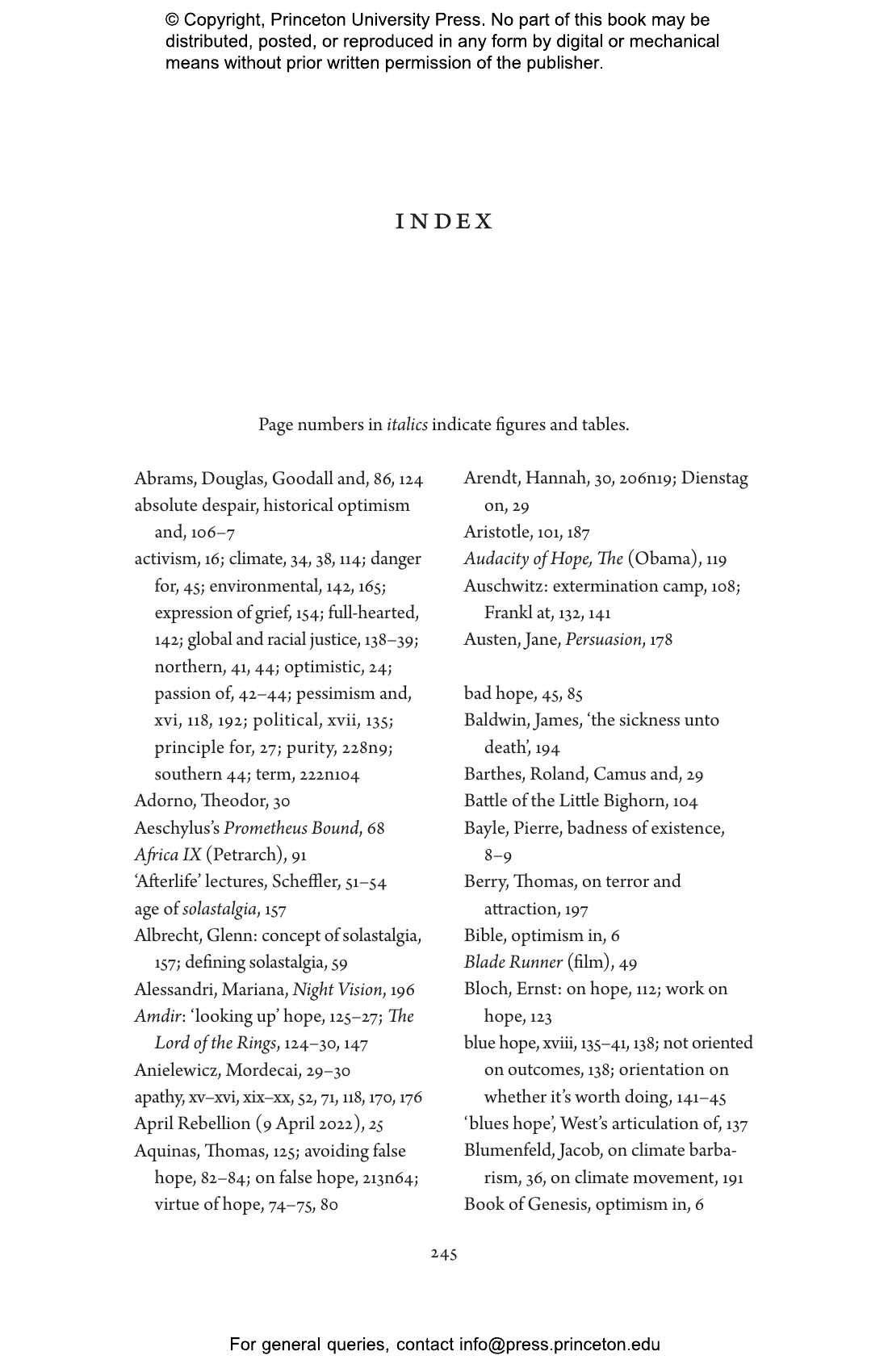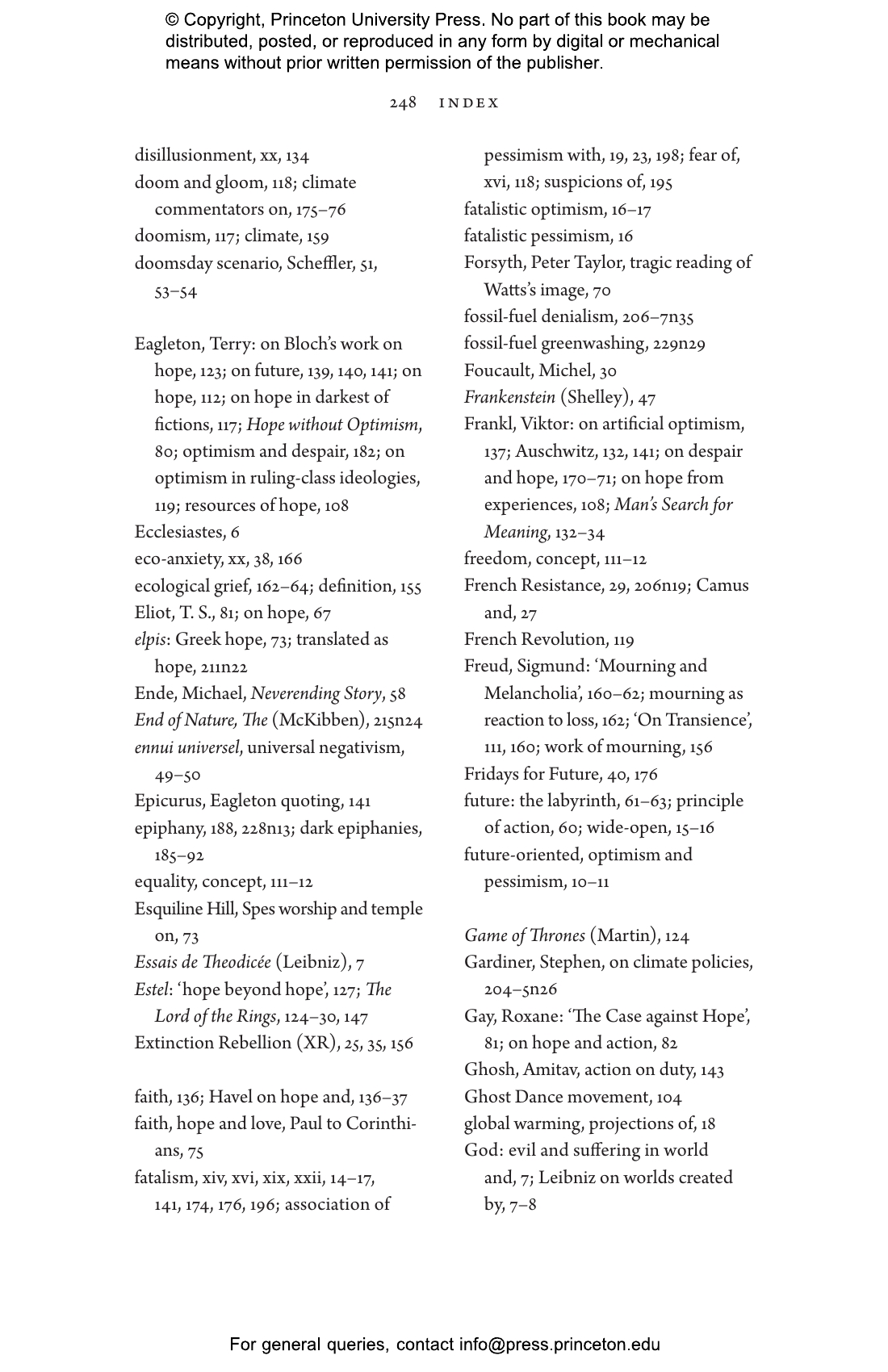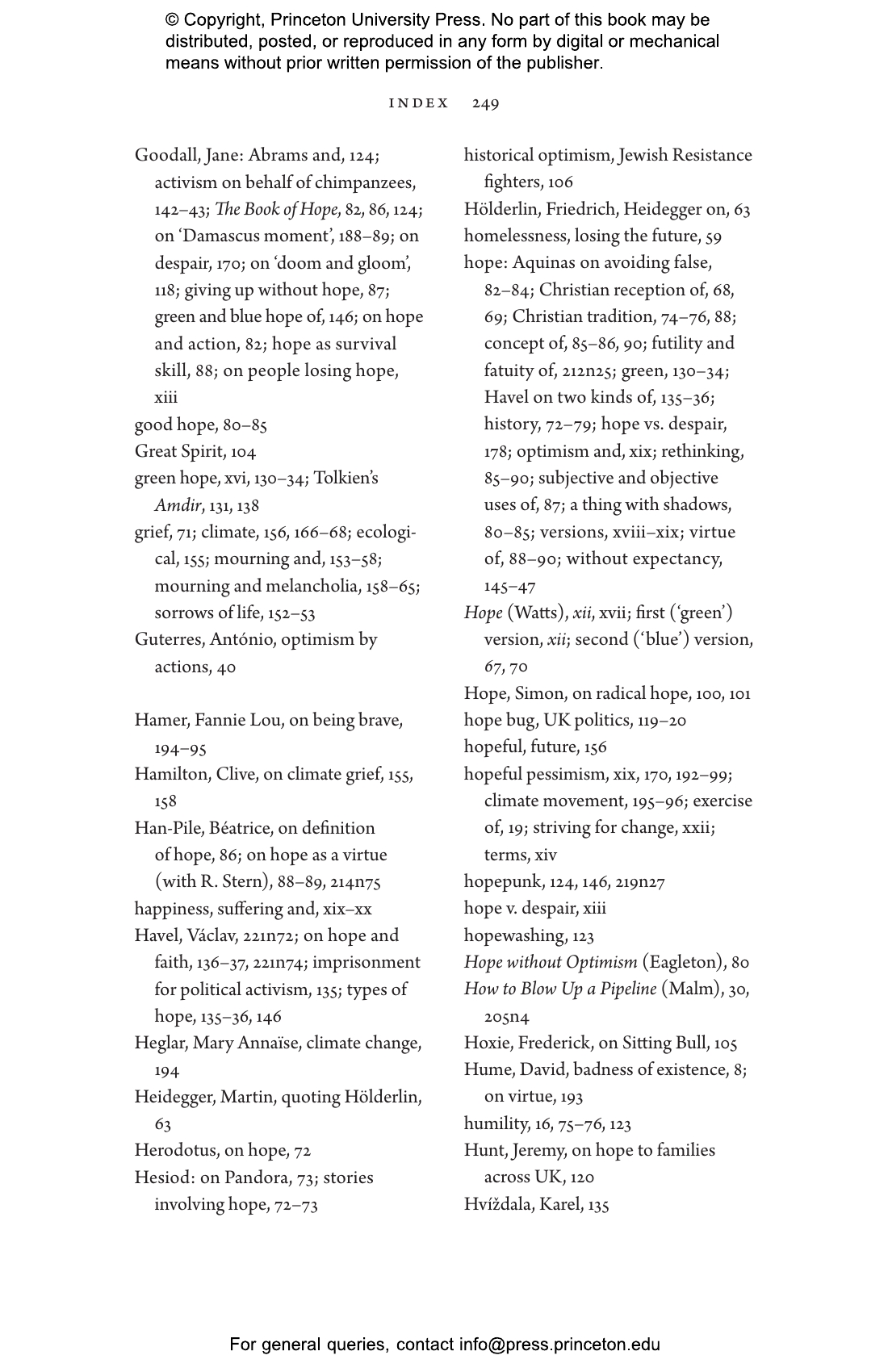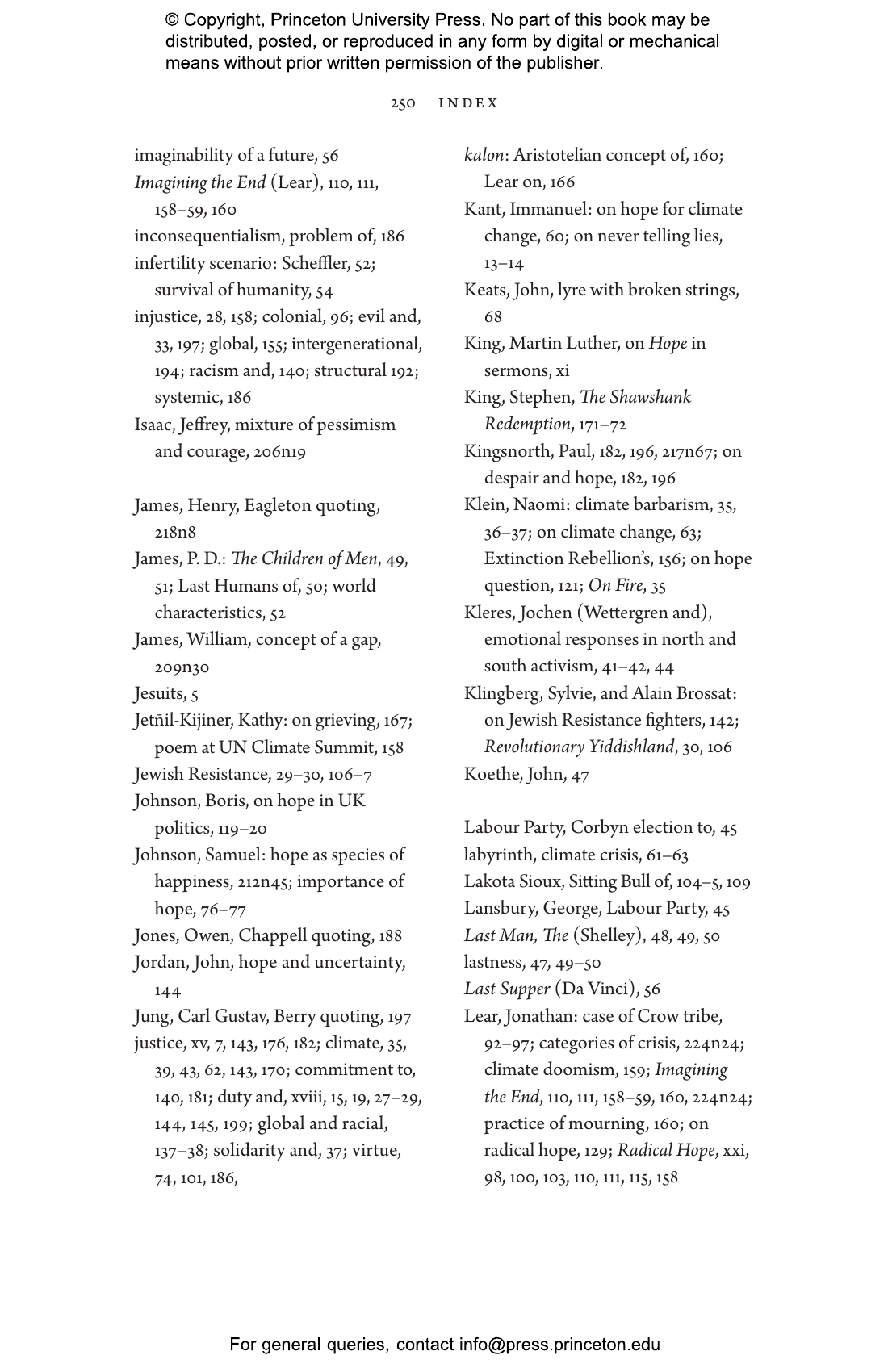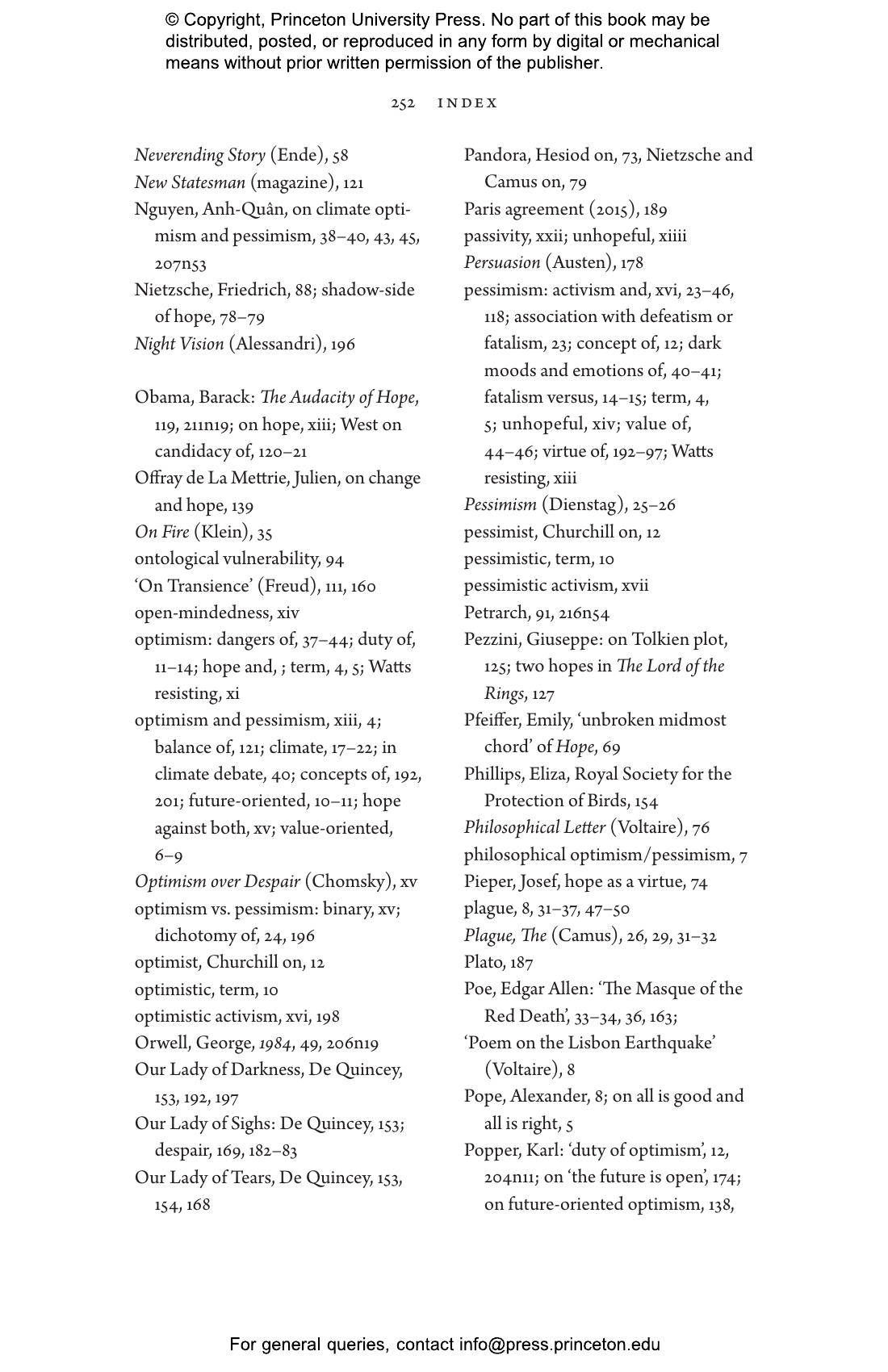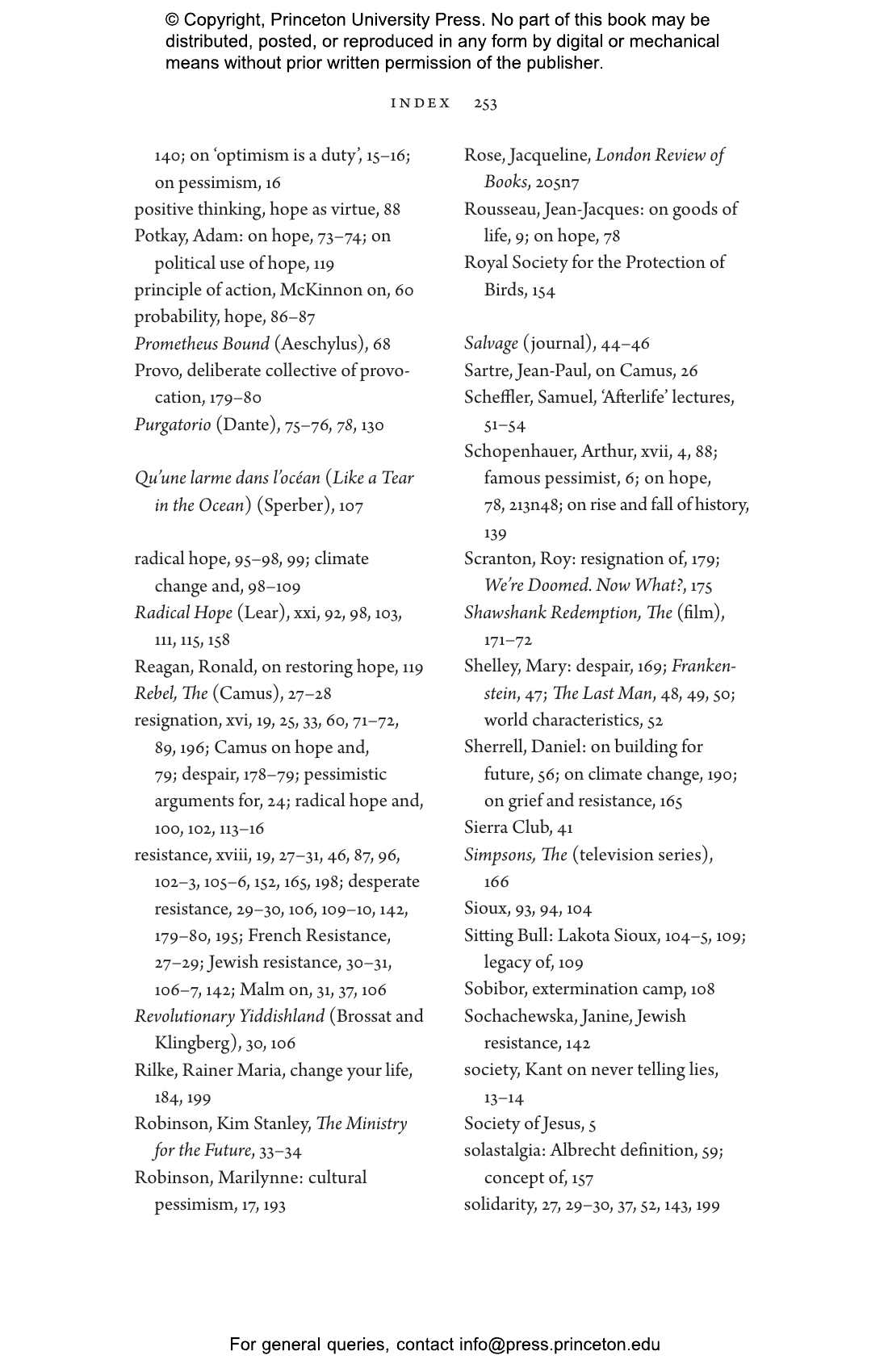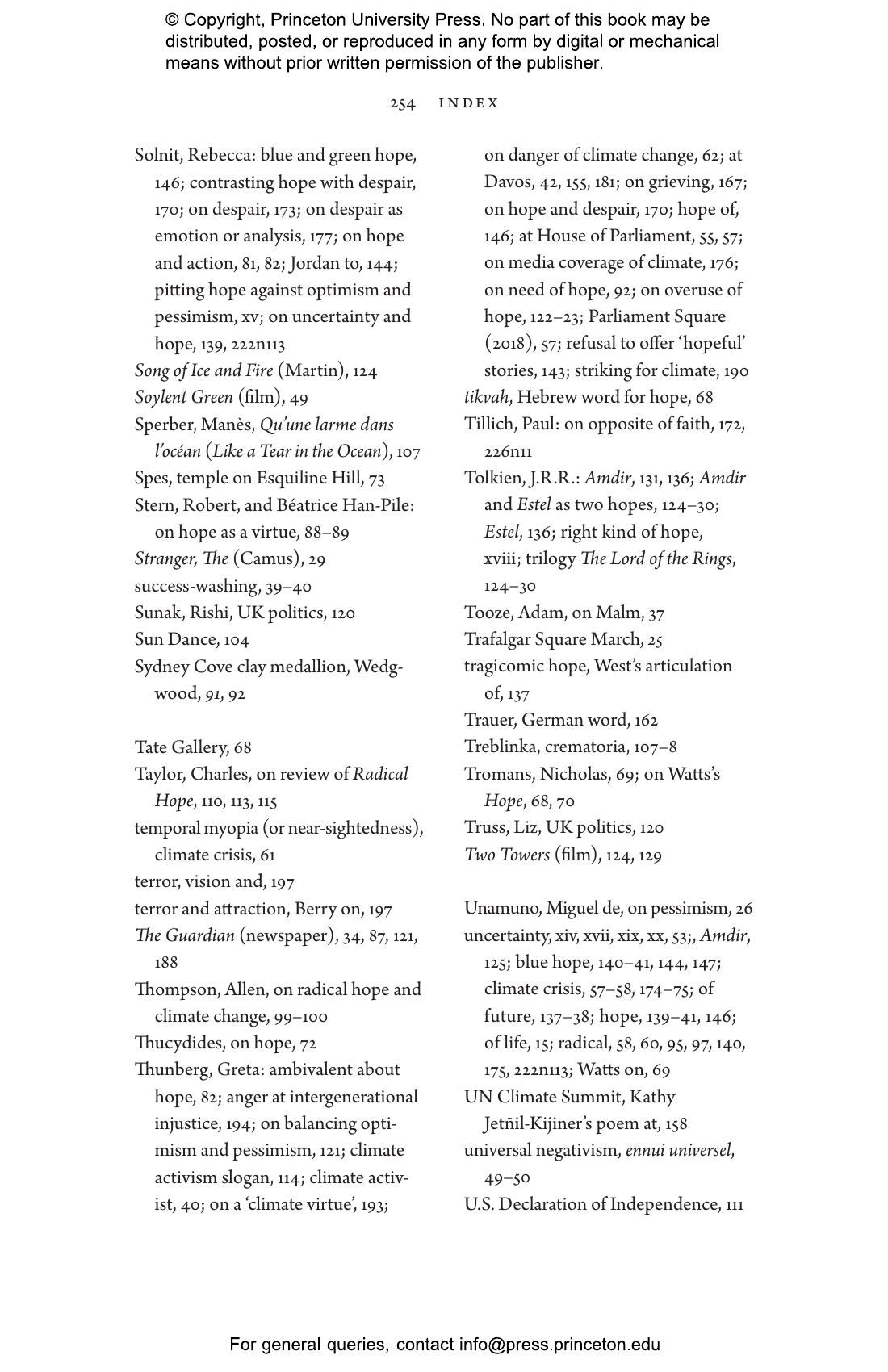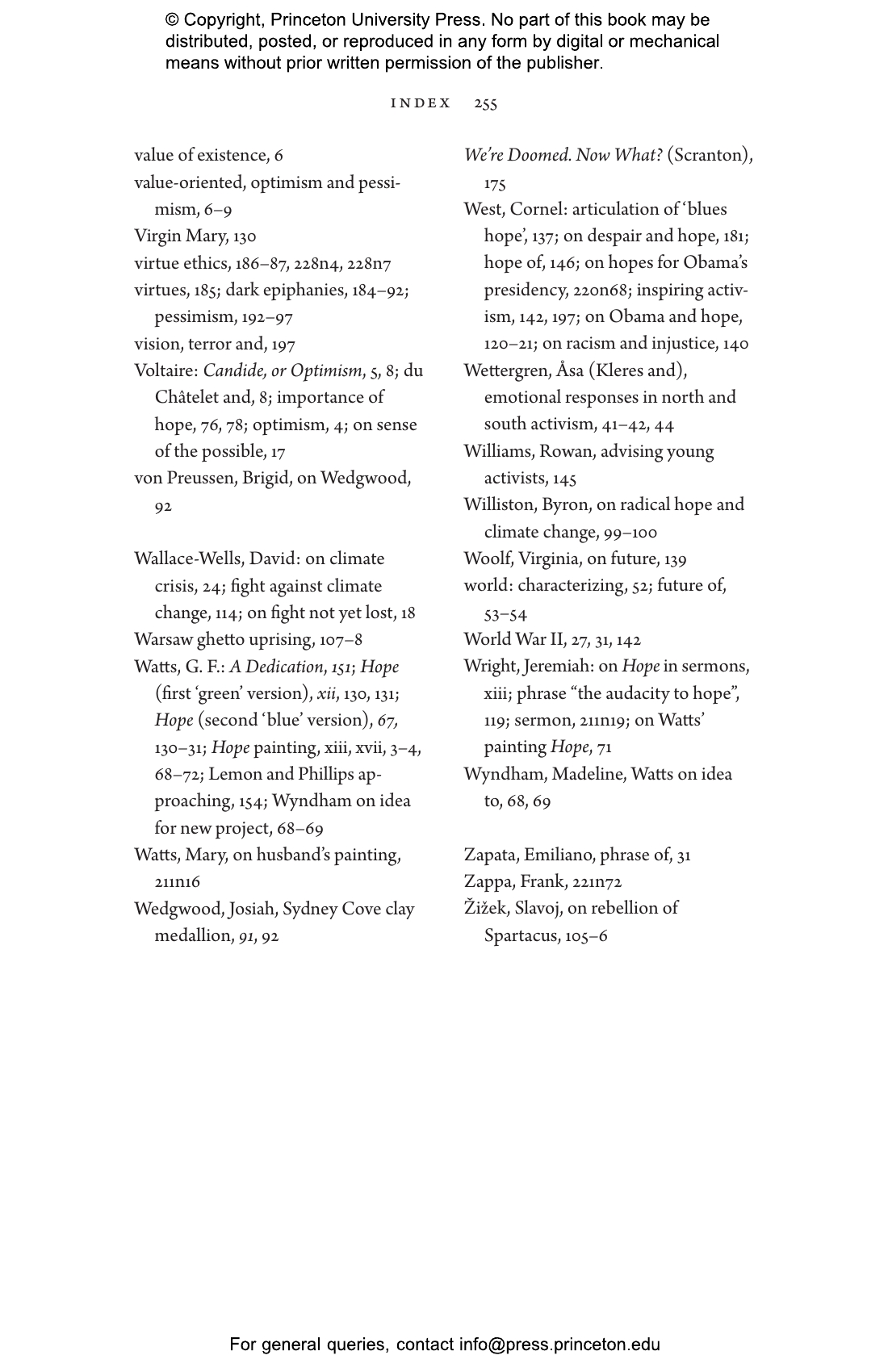The climate debate is rife with calls for optimism. While temperatures rise and disasters intensify, we are asked to maintain optimism and hope, as if the real threat is pessimism and despair. In this erudite and engaging book, Mara van der Lugt argues that this is a mistake: crude optimism can no longer be a virtue in a breaking world, and may well prove to be our besetting vice. In an age of climate change and ecological devastation, the virtue we need is hopeful pessimism.
Drawing on thinkers that range from J.R.R.Tolkien and Mary Shelley to Albert Camus and Jonathan Lear, van der Lugt invites us to rethink what we thought we knew about optimism and pessimism, hope and despair, activism and grief. She shows that pessimism is closely linked to a tradition of moral and political activism, and offers a different way to think about pessimism: not as synonymous with despair but as compatible with hope. Gently yet fiercely, van der Lugt argues that what we need to avoid is not pessimism but fatalism or self-serving resignation. Pessimism does not imply the loss of courage or the lack of a desire to strive for a better world; on the contrary, these are the very gifts that pessimism can bestow.
What Hopeful Pessimism asks instead is that we strive for change without certainties, without expecting anything from our efforts other than the knowledge that we have done what we are called upon to do as moral agents in a time of change.
"Van der Lugt’s main concern is arguably both more farsighted and more immediately pressing than any particular fire or election. . . . For those who feel dread about America and the world, hopeful pessimism. . . offers, I think, what might otherwise be called realism without requiring that one abandon the beauty of possibility. I like, too, that hopeful pessimism demands action, because there are no promises; it banishes wishful thinking."âGal Beckerman, The Atlantic
"Provocative and compelling."âGlenn C. Altschuler, Psychology Today
"Timely."âKieran Setiya, Times Literary Supplement
"Eloquent and thought-provoking."âLeslie Jones, Quarterly Review
"[An] erudite study. . . . This book is a subtle, reflective and inspiring contribution to an engaged social philosophy for our time."âDavid Lorimer, Paradigm Explorer
"[A] brilliant book. . . . Many will find it a therapeutic read, and not only those involved in climate activism. Hopeful Pessimism is shaped by the needs of life, and it that sense it's practical philosophy at its best."âDaniel Callcut, New Humanist
"The best of what optimism and pessimism both have to offer. It has the advantage of drawing us away from self-centred hope, and towards the responsibilities we have to our fellow human beings and the wider world."âJoe Humphreys, Irish Times
"A timely and meaningful intervention in how we think about hope, despair, and action in an age of crisis. . . . it will. . . resonate with anyone trying to navigate the tension between action and despair in their own lives. I would strongly recommend it to researchers and activists alike – not as a manual for survival, but as a deeply serious companion for the long work of moral engagement in dark times."âRiti Kumari, Journal of Applied Philosophy
“Mara van der Lugt has written easily the best book for understanding the pessimism-optimism divide that clouds and bedevils the climate activism debate. Hopeful Pessimism is a text of profound thoughts expressed with admirable clarity. Highly recommended.”—Clive Hamilton, author of Defiant Earth: The Fate of Humans in the Anthropocene
“A beautiful book on an essential theme. As the dark challenges of the climate crisis remind us, even if we see little possibility that ‘everything will work out’—indeed, even if we cannot see a way through—we must still do our best to be present, to fight for the future, and to bear witness. We owe it to the future, the past, each other, and ourselves.”—Stephen Gardiner, author of A Perfect Moral Storm: The Ethical Tragedy of Climate Change
“Hopeful Pessimism is beautifully and elegantly written, an enjoyable and illuminating read.”—Steven Nadler, author of Descartes: The Renewal of Philosophy
“Beautifully written, conversational without any sacrifice of philosophical seriousness, this is an arresting and original book.”—Ritchie Robertson, author of The Enlightenment: The Pursuit of Happiness, 1680–1790


